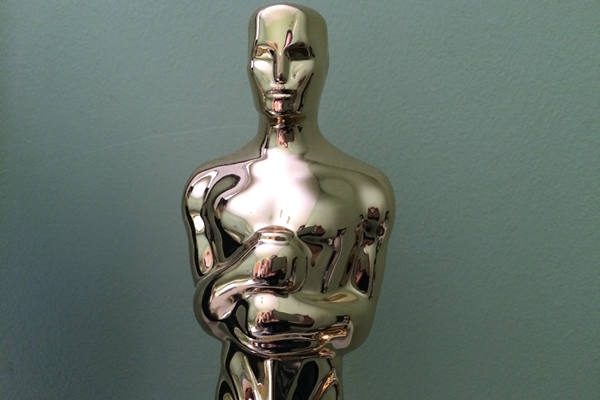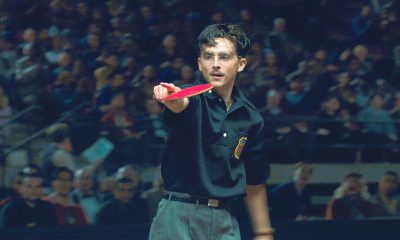Arts & Entertainment
Oscar announcement brings LGBT surprises
Nominations abound but will any of them take home the gold?
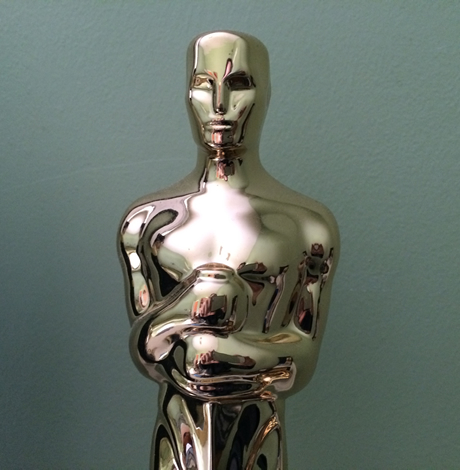
By JOHN PAUL KING
The Oscar nominations for 2017 have been announced, and while there are, as usual, a few surprises as to who has been included and who has been left out, most savvy film aficionados will find the list of competitors a close match to their expectations.
It’s been an unusually rich year for “award bait” movies. In many (if not most) past Oscar races, there have been one or two clearly worthy front-runners and the rest of the crop has seemed like filler.
Even so, the Oscars have never been about quality alone; politics have always played a part in determining nominations and especially winners. In this year’s contest, not surprisingly in a cultural context rife with polarizing controversy, that observation may be truer than ever.
Categories that are traditionally all-male include women. Greta Gerwig received a nod for her direction of “Lady Bird” and “Mudbound” garnered a nomination for its cinematographer, Rachel Morrison, the first female to be so-recognized.
Black talent has also been acknowledged. Jordan Peele earned well-deserved (and pleasantly surprising) nominations for both directing and writing his brilliant blend of horror and social satire “Get Out,” which was also included as a Best Picture contender. That movie’s star, Daniel Kaluuya, is also a nominee for Best Actor as is Denzel Washington, for his work in “Roman J. Israel, Esq.,” a rare instance of two black performers included in the running for that prize.
The most obvious area of improvement this time out, however, is the amount of recognition the Academy has given to LGBT-themed movies and performances.
Most prominent, of course, is “Call Me By Your Name.” This gay coming-of-age story may have generated some controversy over the age gap between its two protagonists (especially after the revelations about Kevin Spacey’s long history of age-inappropriate sexual advances), but it overcame such concerns to become one of the best received and most recognized films of the year. Its nomination for Best Picture is no surprise, nor is its presence in the categories of Best Actor and Best Adapted Screenplay, though its nod for Sufjan Stevens’ “Mystery of Love” in the Best Original Song category may have raised some eyebrows.
What’s disappointing and telling is the exclusion of co-star Armie Hammer (considered as a likely bet for a Best Supporting Actor bid) and, even more shocking, Luca Guadagnino for the Best Director prize. The latter snub seems particularly pointed, considering that Guadagnino is one of the film’s few openly gay contributors, underscoring the not-unfair criticism that, though “Call Me” is an LGBT-themed movie, its participants (including both lead actors) are straight.
On the other hand, James Ivory, who is also an out gay man, was nominated for his adaptation of André Aciman’s book; no stranger to Oscar attention (“A Room With A View,” “The Remains of the Day” and “Howard’s End”), he is considered a front-runner to take home the statuette.
Unfortunately for fans of Timothée Chalamet, his chances of a win are far less likely. Though he grabbed some trophies early in this year’s awards season, he has since been eclipsed by Gary Oldman’s powerhouse turn as Winston Churchill in “The Darkest Hour,” which has dominated the Best Actor category at most of the recent ceremonies. Oldman is a well-loved performer who has been passed over several times for past work; on top of that, “Darkest Hour” proved its popularity among industry insiders by making a surprising show in the Oscar list, even grabbing an unexpected slot in the Best Picture roster. Both of those factors make it impossible to doubt that Chalamet, despite giving us one of the most unforgettable film performances in recent memory, will be going home empty-handed.
There are other LGBT-relevant films singled out in this year’s nominations.
Though not explicitly gay-themed, Gerwig’s “Lady Bird” does feature a tenderly handled subplot involving a gay character. That film is well-represented in the competition, and stands a reasonable chance of winning any of its nods for Best Picture, Director, Original Screenplay, Actress (Saorise Ronen) or Supporting Actress (Laurie Metcalf).
Likewise, Guillermo Del Toro’s “The Shape of Water,” which leads the nomination tally with a total of 13, is not an LGBT movie but an exploration of “otherness” in a world dominated by straight, white, cis-gendered male identity. It also prominently features a gay character, an older commercial artist whose happiness is blocked at every turn by homophobia and the psychology of the closet, played by actor Richard Jenkins.
For his likable performance, he has been nominated for Best Supporting Actor; like Chalamet, though, his chances are overshadowed by a powerhouse front-runner — Sam Rockwell, whose work as an evolving racist cop in “Three Billboards Outside Ebbing, Missouri” is considered the clear favorite for the win.
Finally, in the category of Best Foreign Language Film, the Chilean/German co-production, “A Fantastic Woman,” secured a nomination. The story of a transgender woman fighting transphobia for the right to mourn after the death of her lover, it should also have gotten recognition for its star, trans actress Daniela Vega, who gave one of the strongest performances of the year, by any standard. As a foreign performer, and a relatively inexperienced and unknown one, she didn’t stand much of a chance. But the Academy missed a chance to show support and solidarity with the trans community by giving her a nod. Even so, the film’s nomination is a major step, although the omission of “BPM (Beats per Minute)” within the same category, is a disappointment.
It’s too early in the race to make predictions. Though “Three Billboards” is currently considered the favorite to win (along with its star Frances McDormand and the previously mentioned Rockwell), controversy over its handling of racist themes (as well as some critical backlash over the contrivances of its story) may lower its chances as the big night draws nearer and “Shape of Water” made such a strong showing in the nominations that its popularity among Academy voters is impossible to ignore.
Even given such causes for doubt, however, it seems certain that Oscar will not be duplicating the triumphant validation it delivered for queer awareness with its selection of “Moonlight” for Best Picture.
This year, it looks like the LGBT community will be an also-ran.
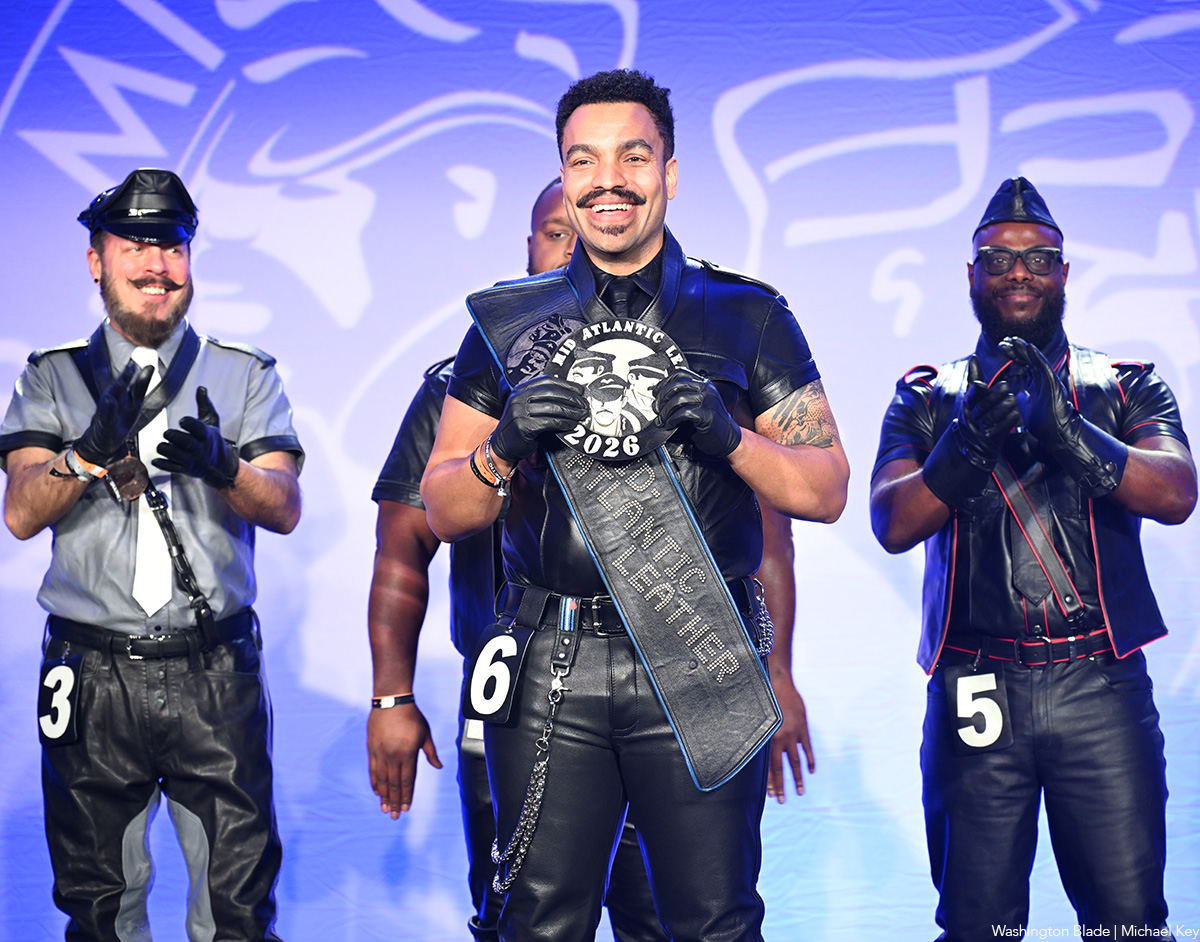
The 2026 Mr. Mid-Atlantic Leather competition was held at the Hyatt Regency Capitol Hill on Sunday. Seven contestants vied for the title and Gage Ryder was named the winner.
(Washington Blade photo by Michael Key)
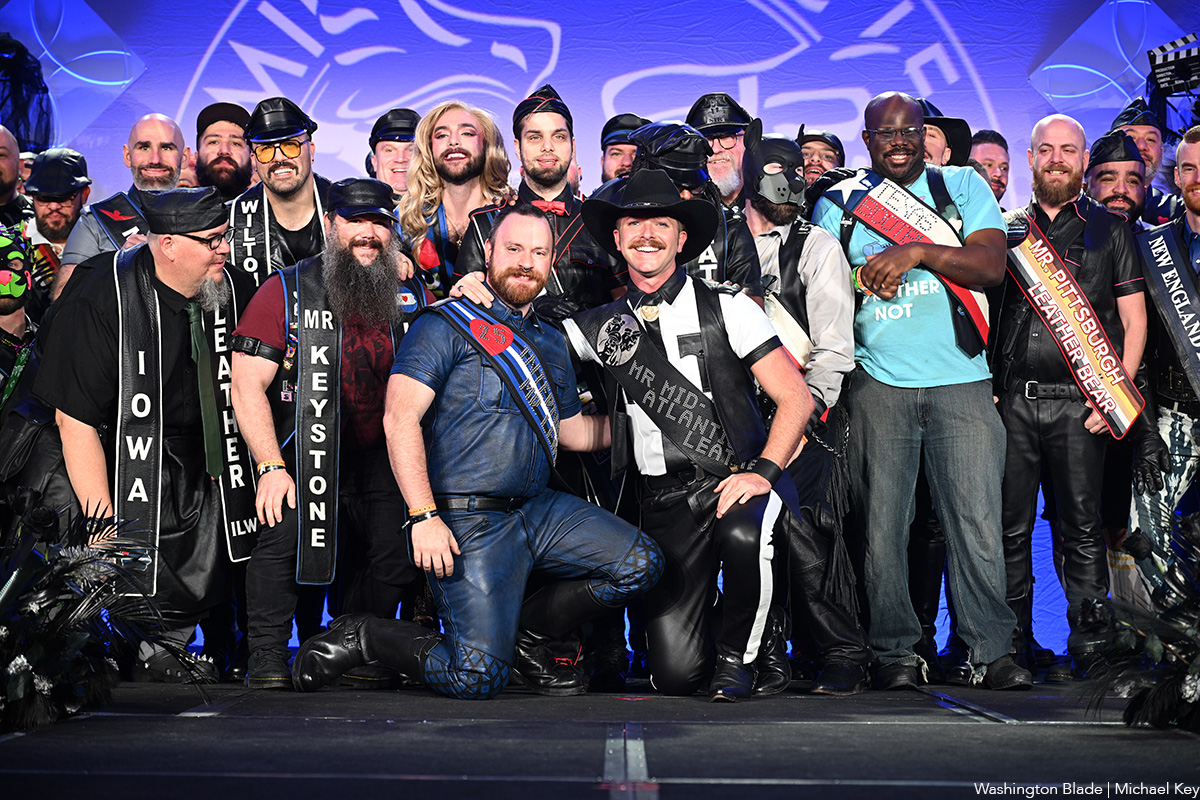
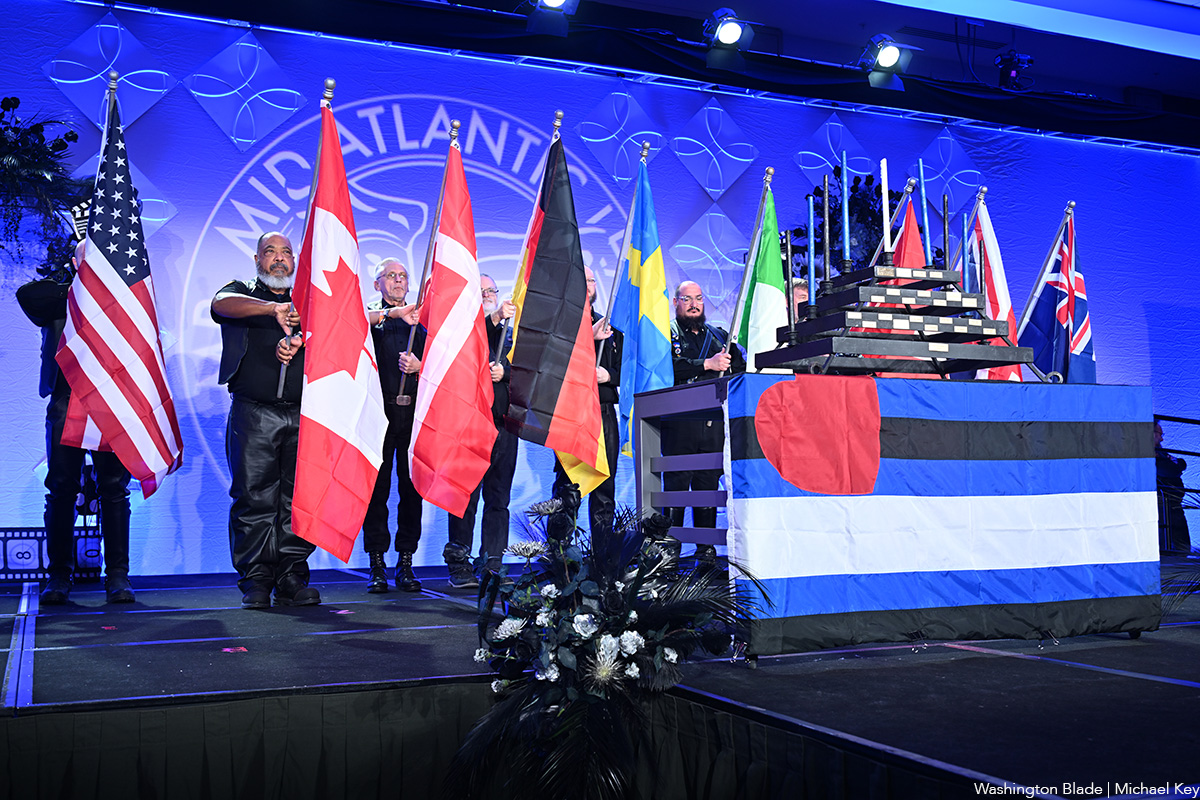
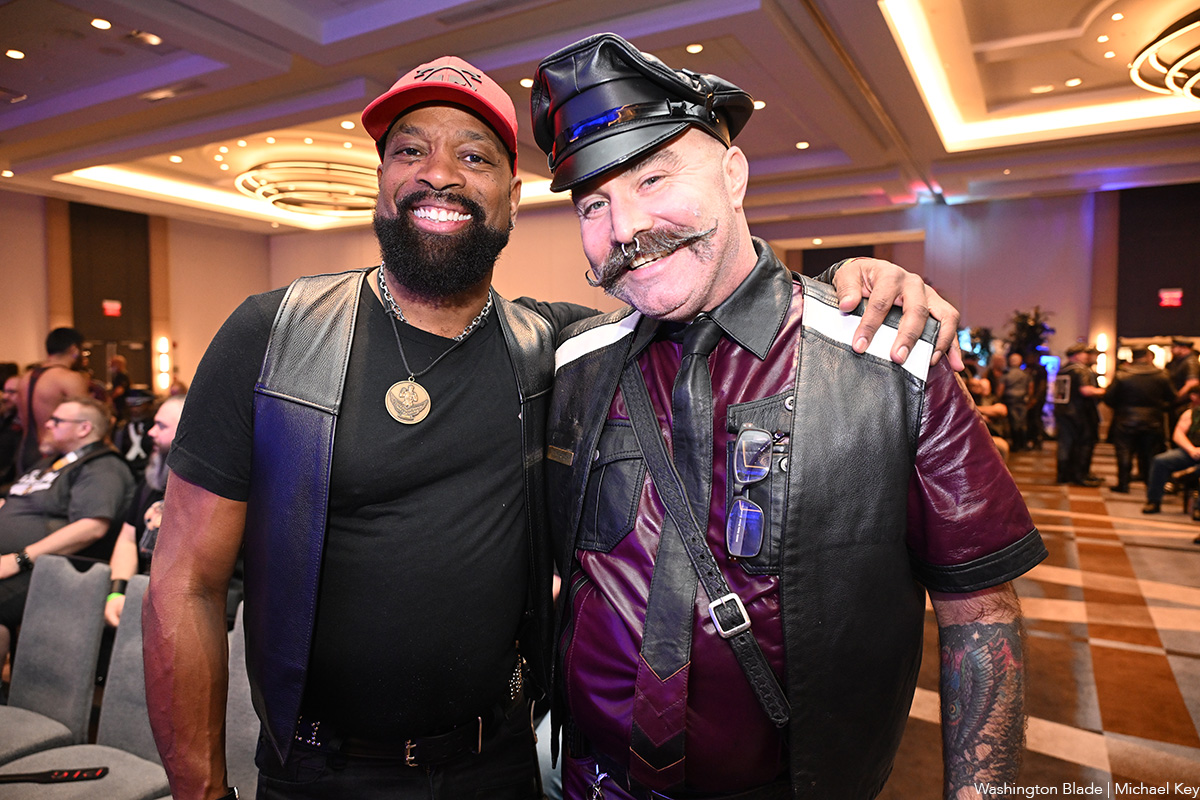
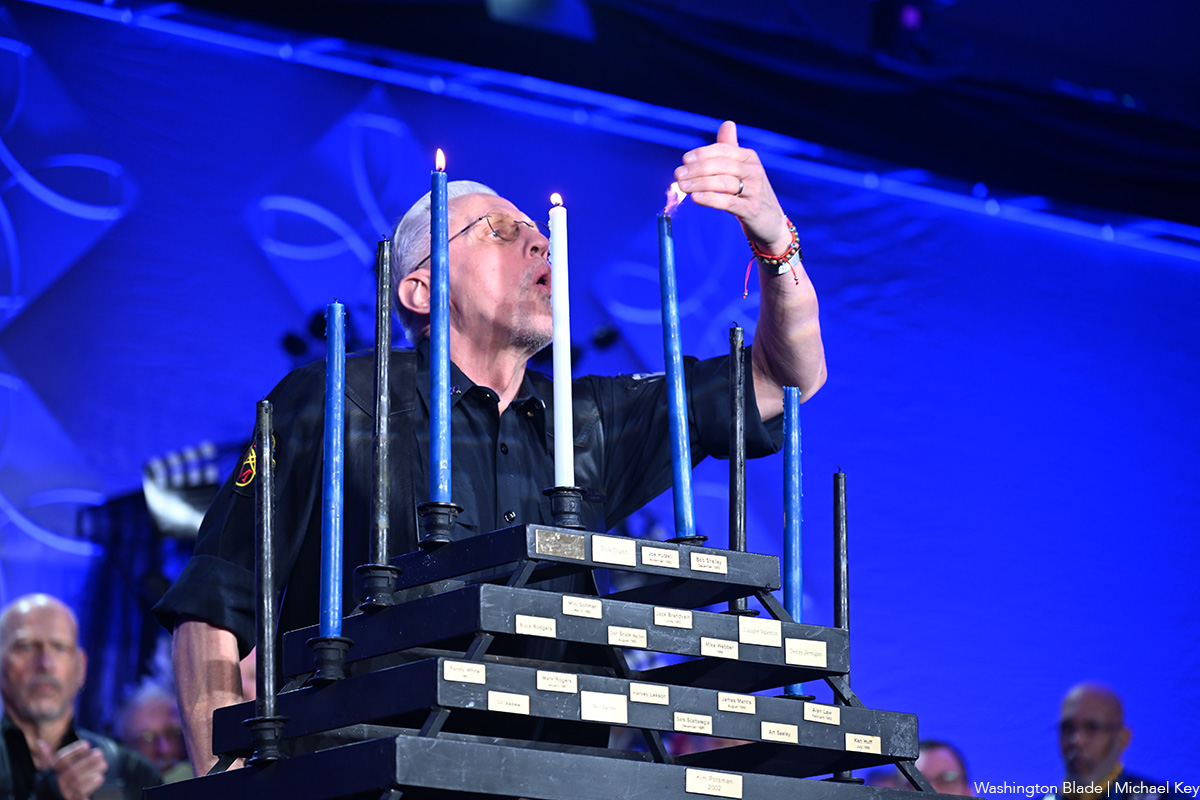
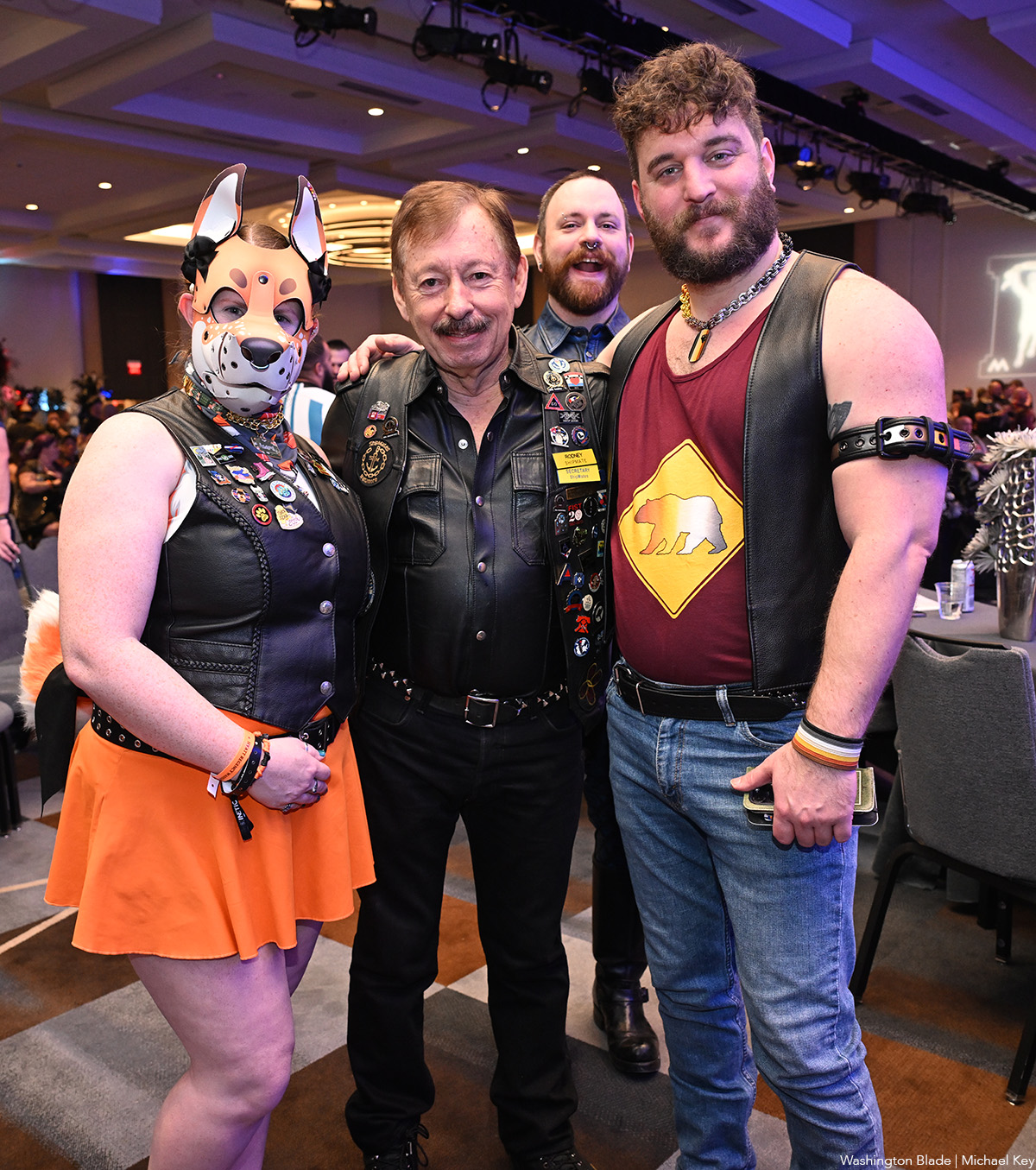
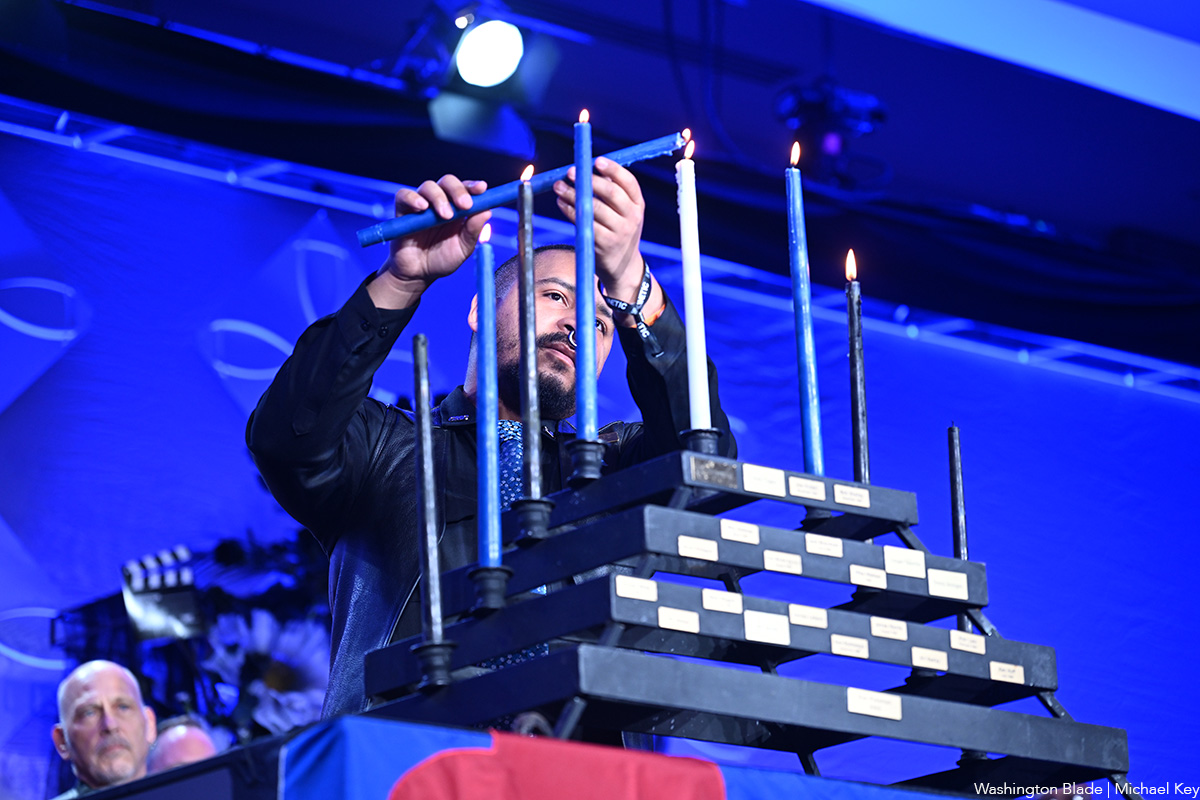
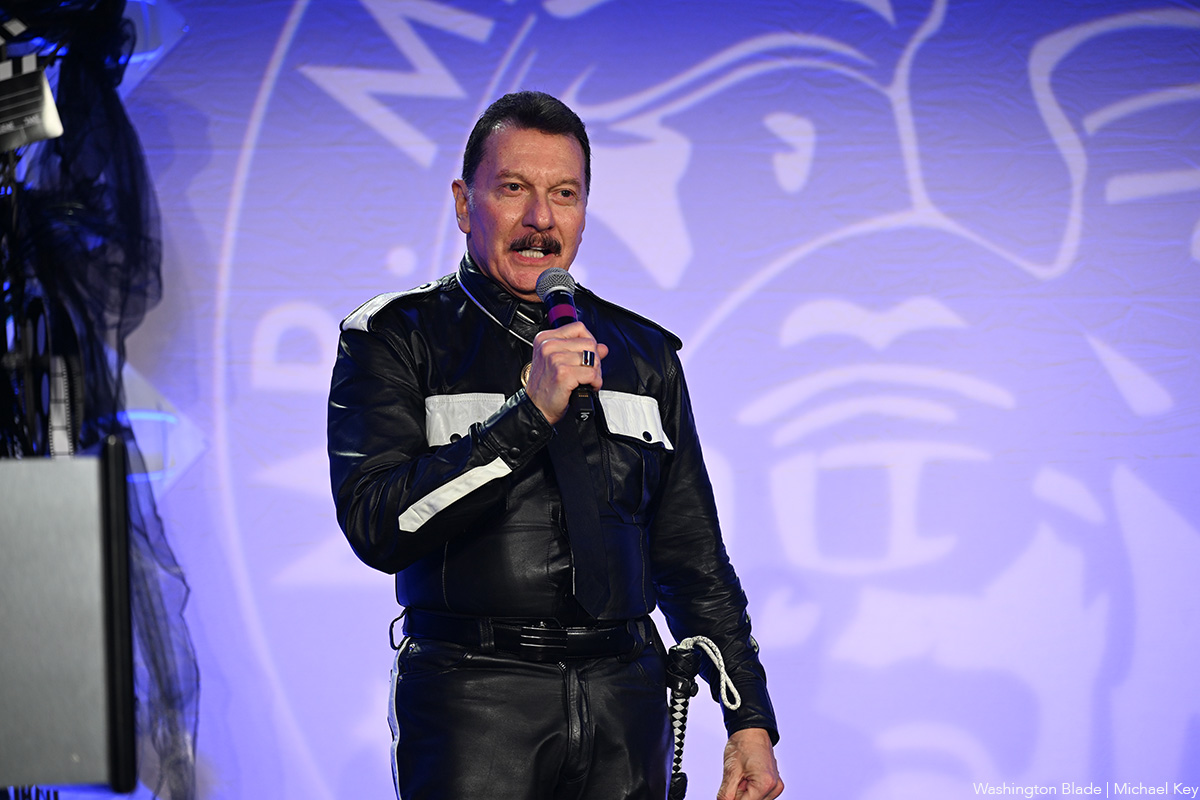
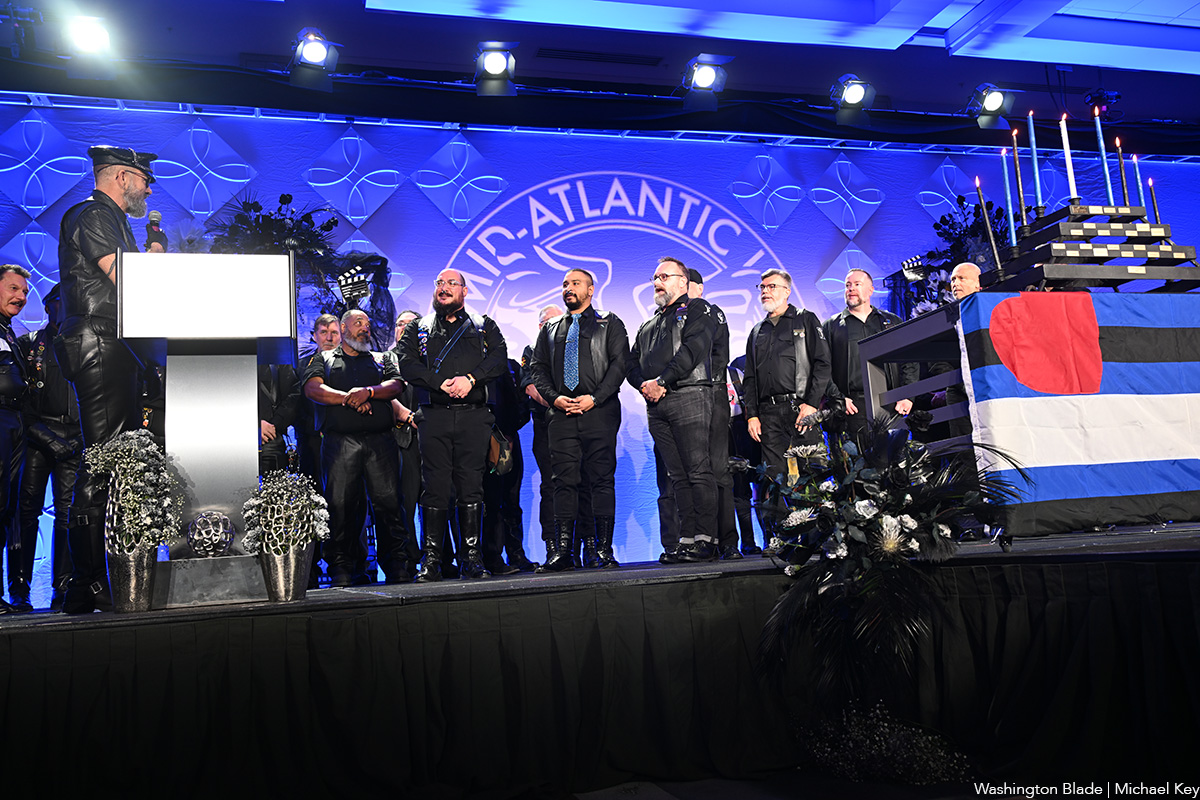
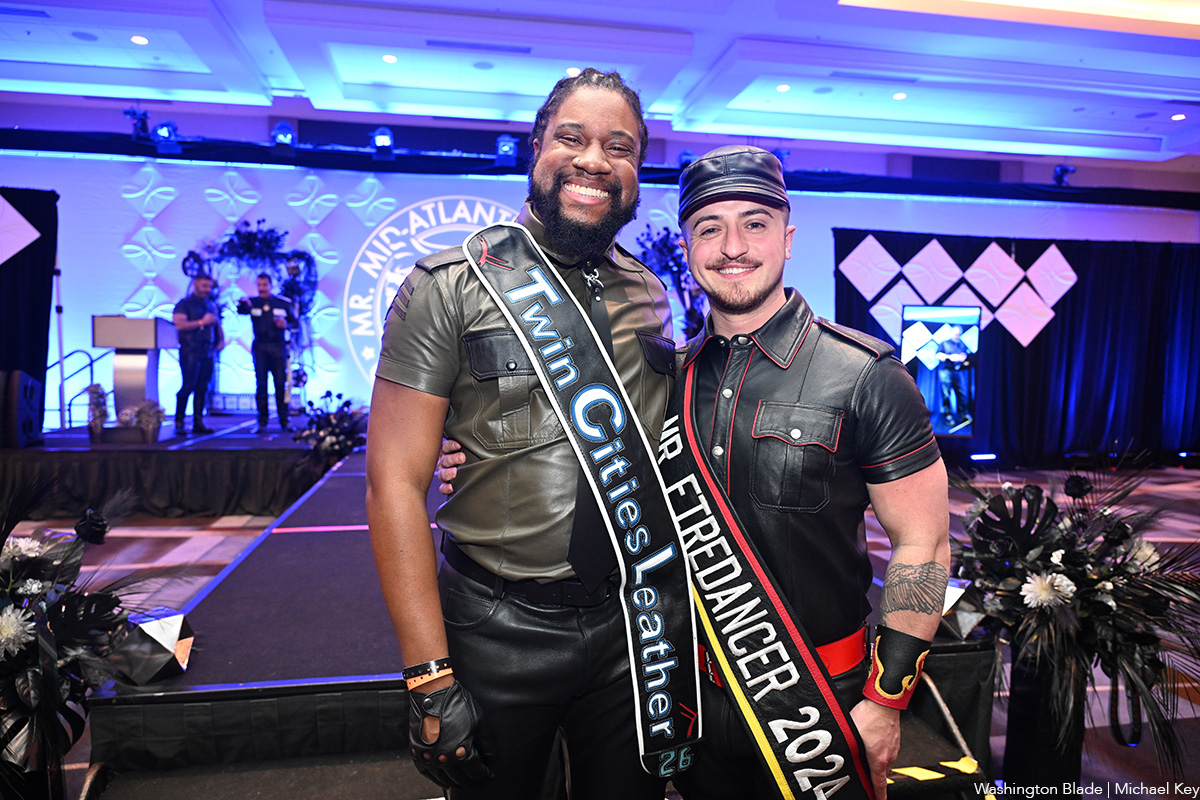
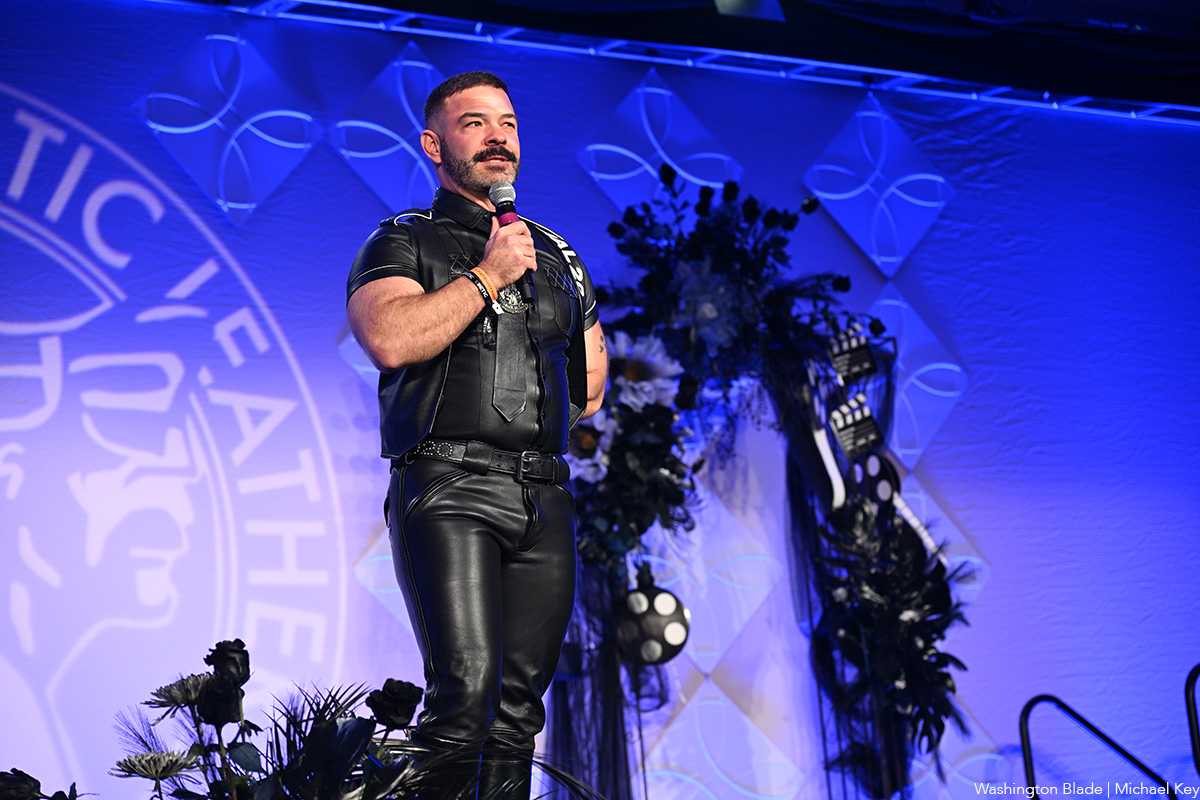
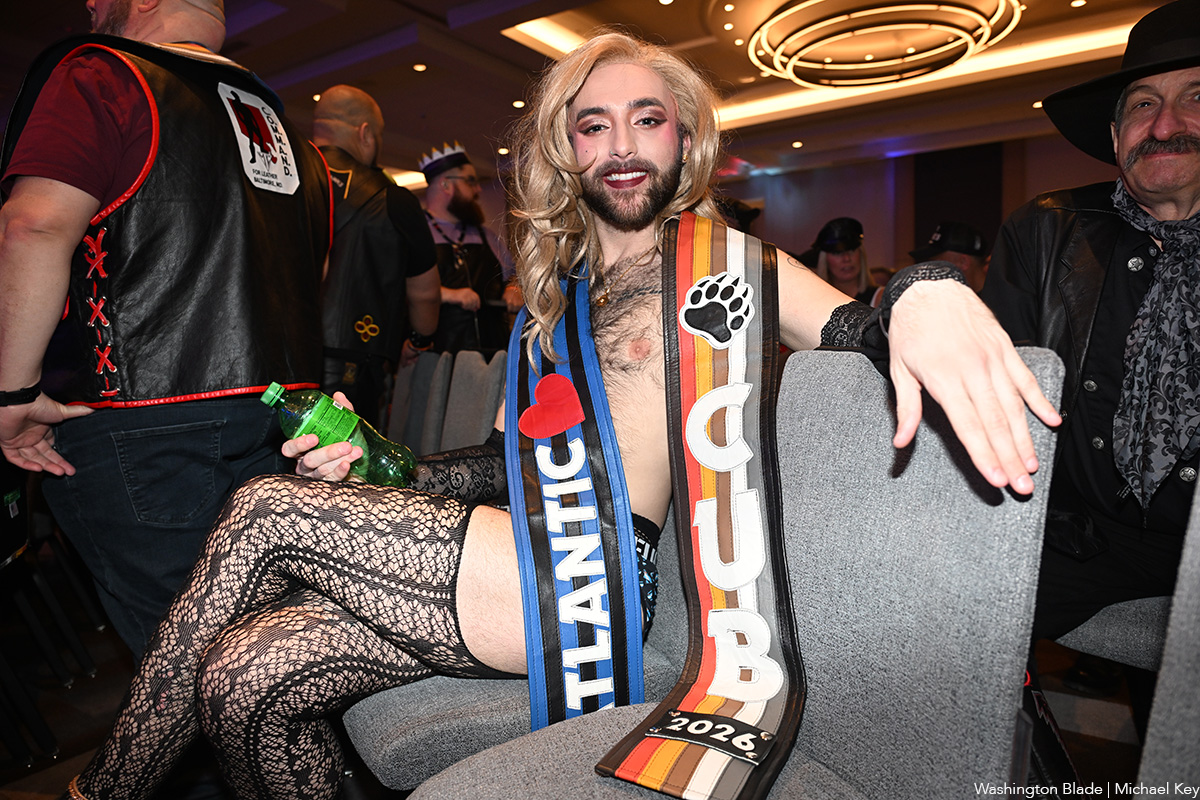
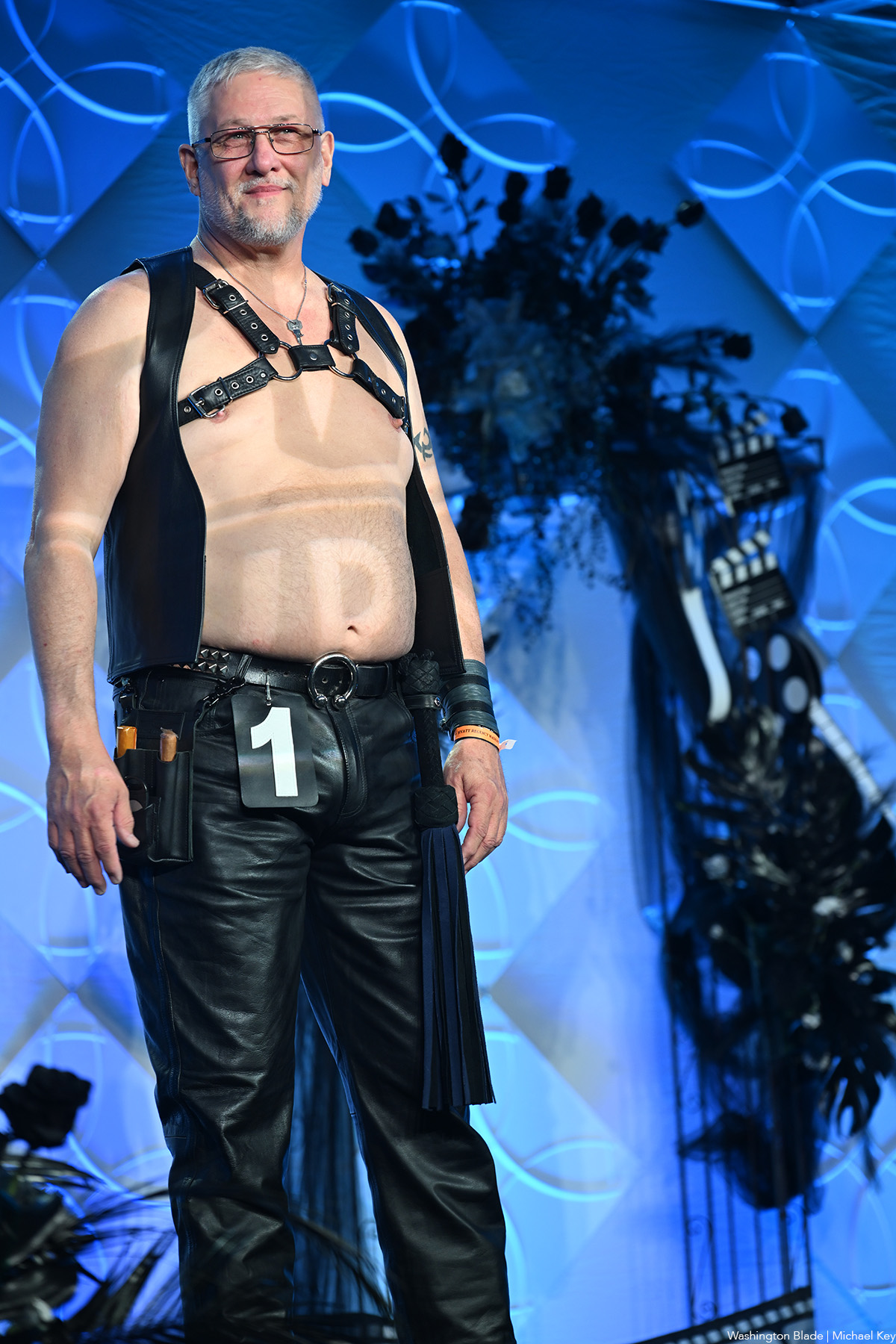
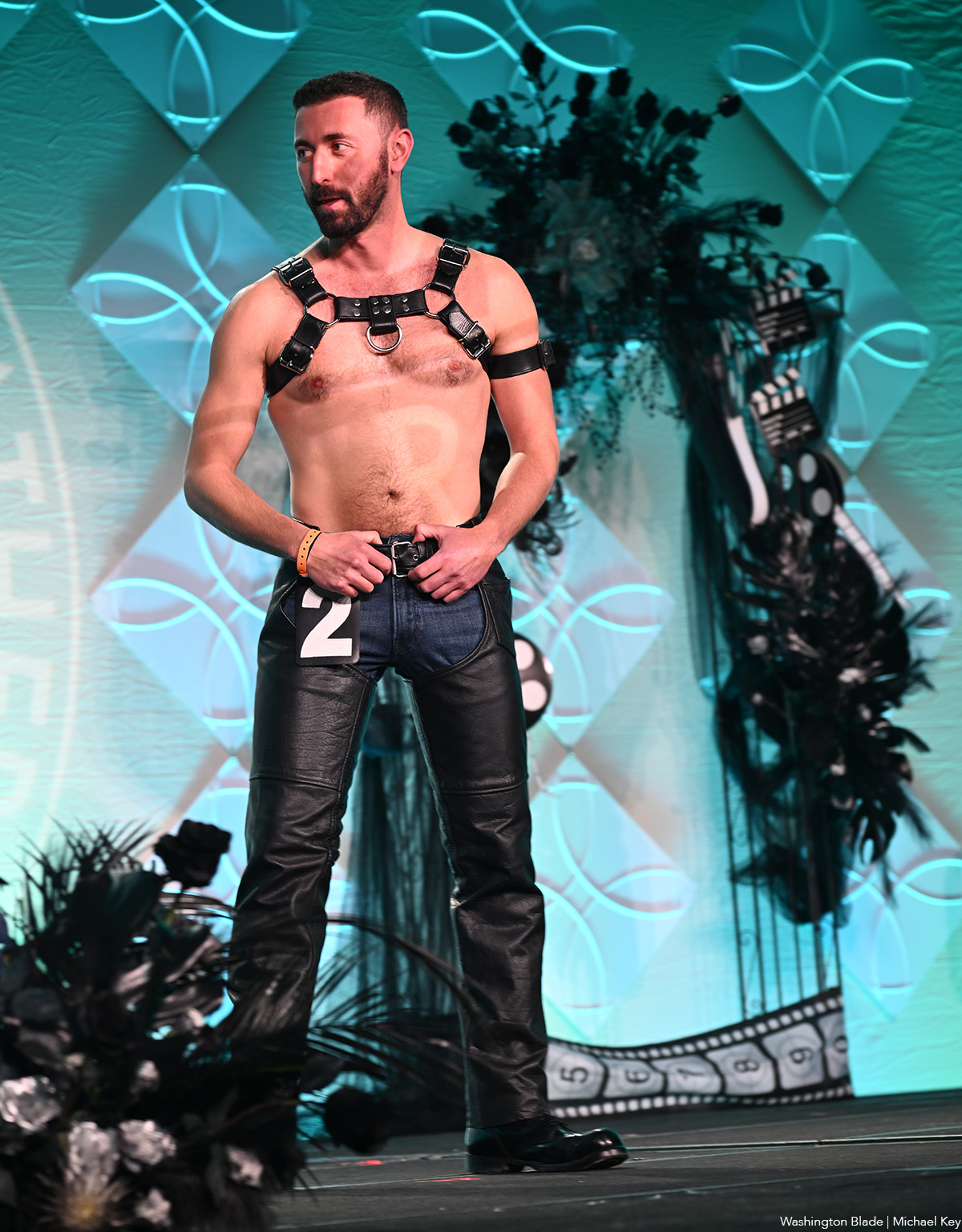
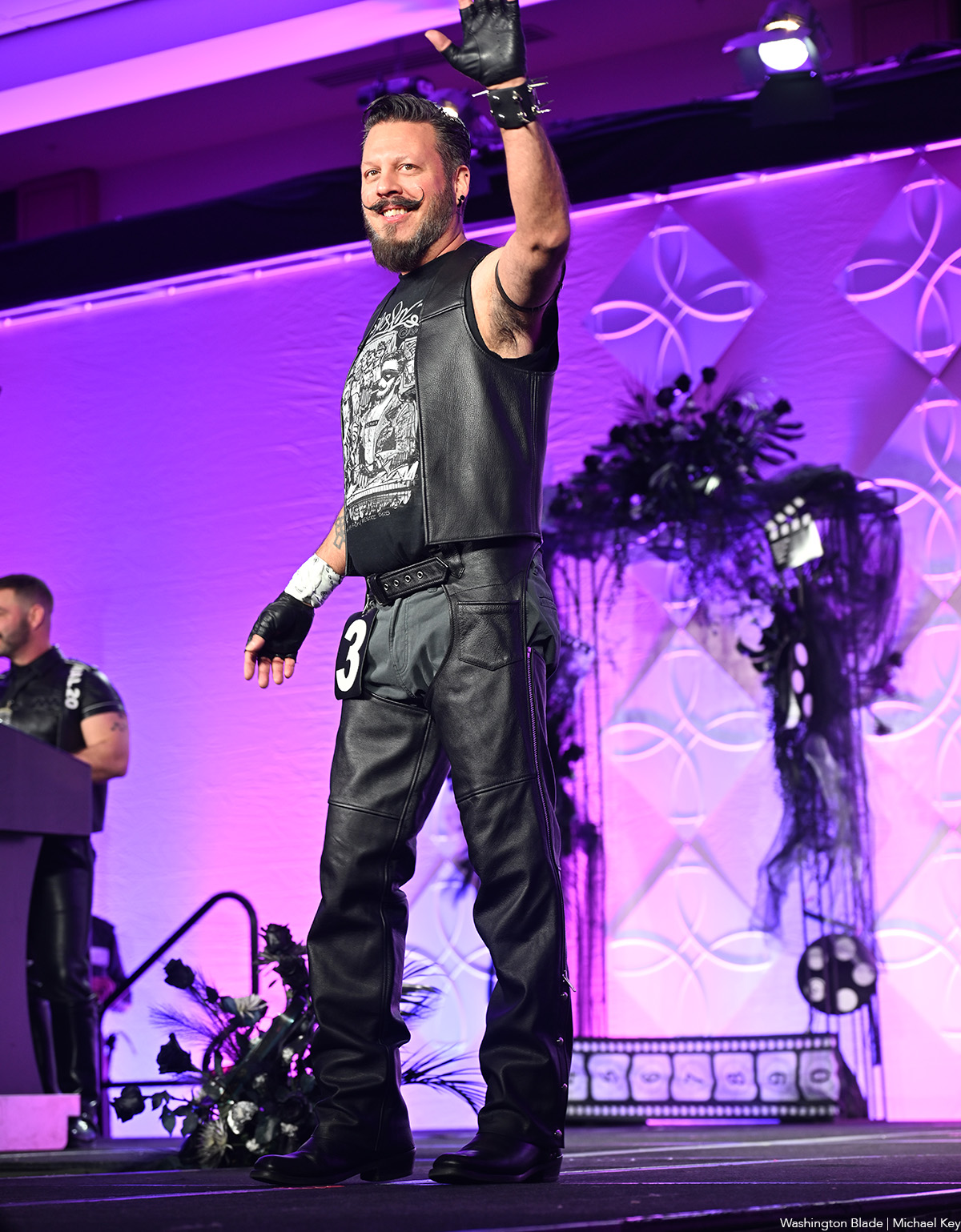
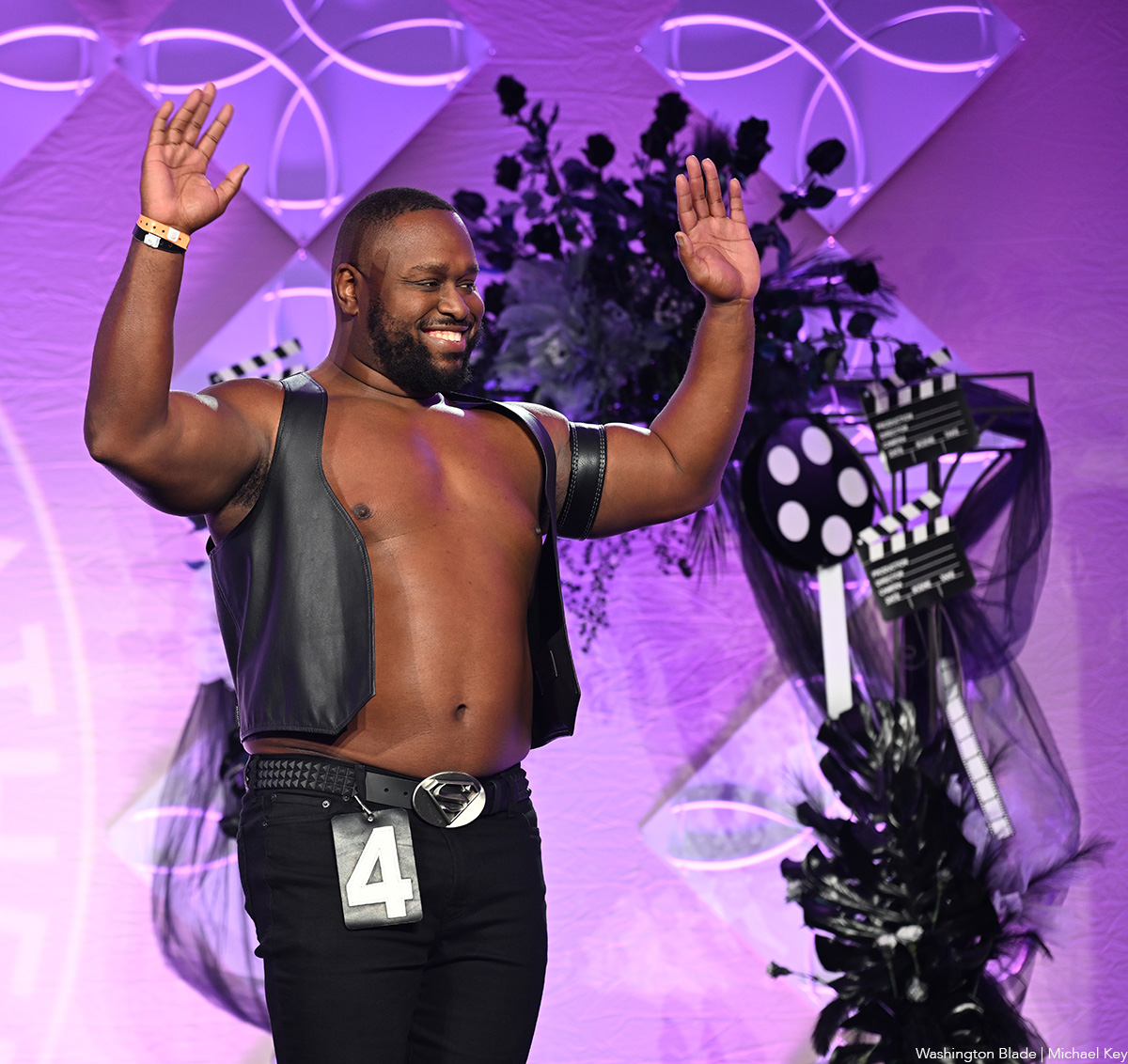
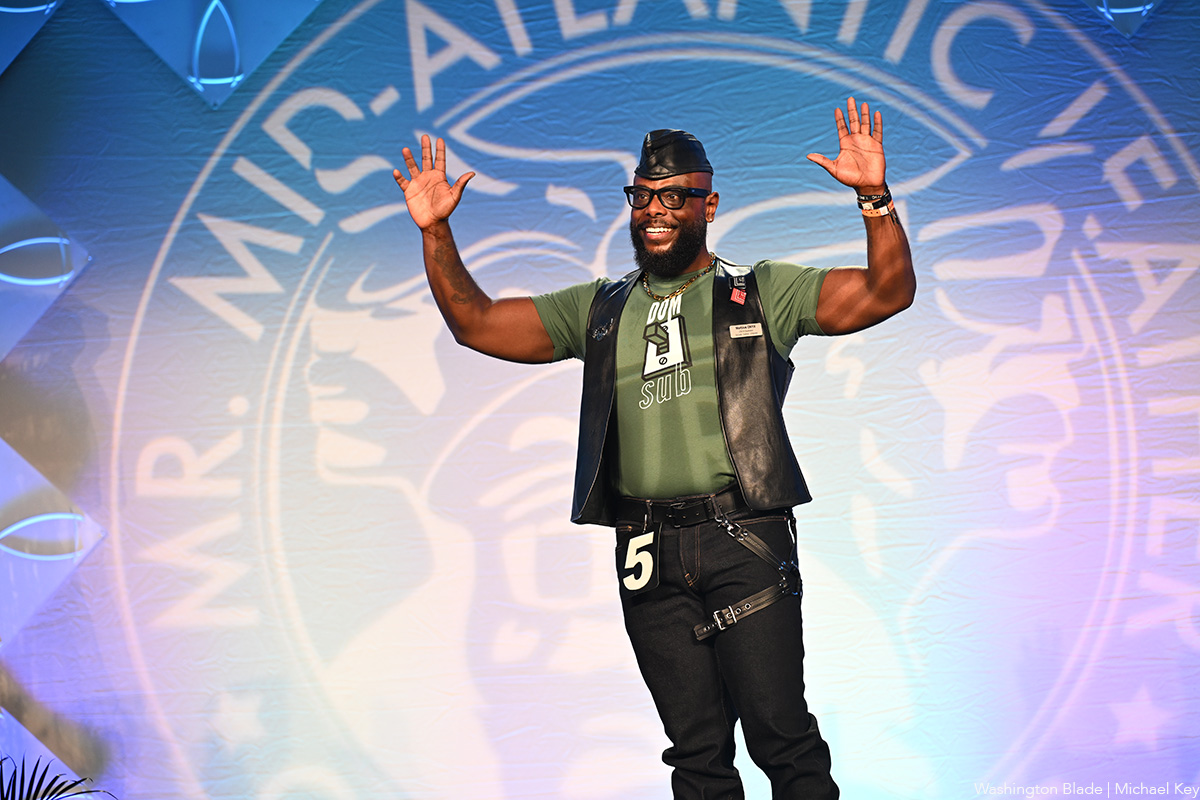
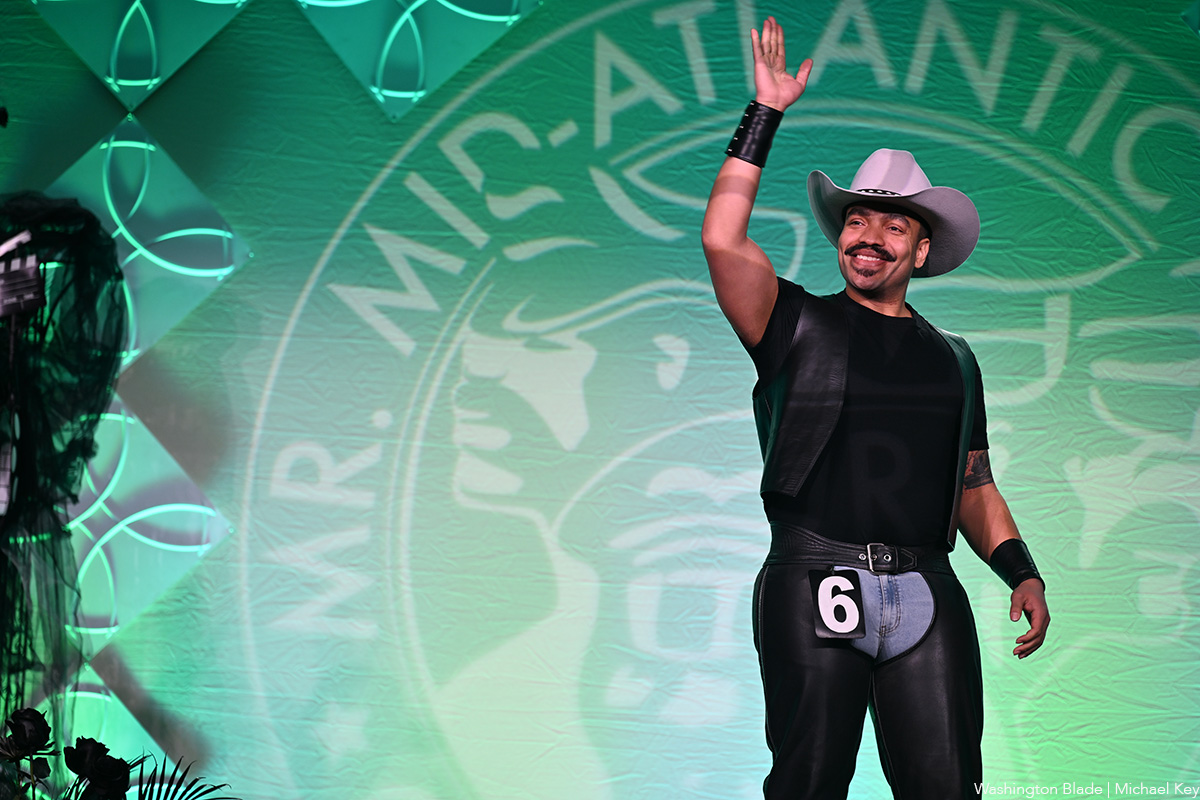
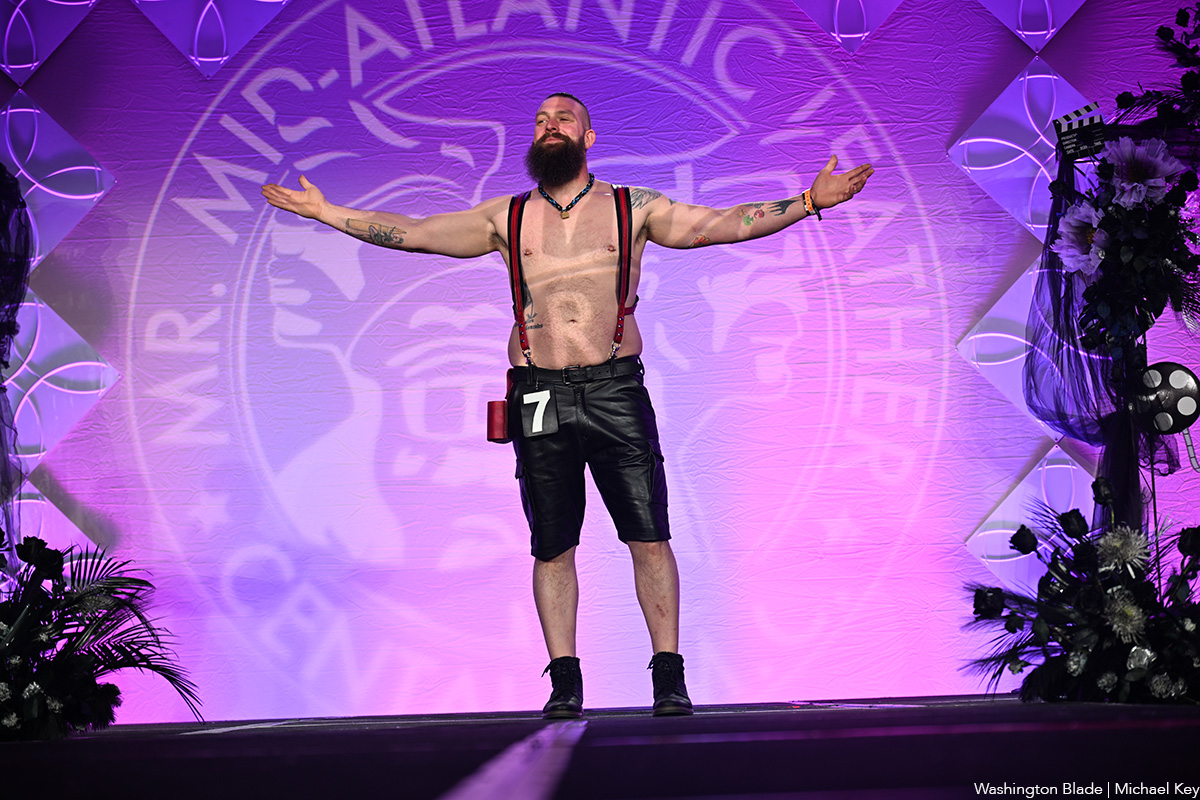
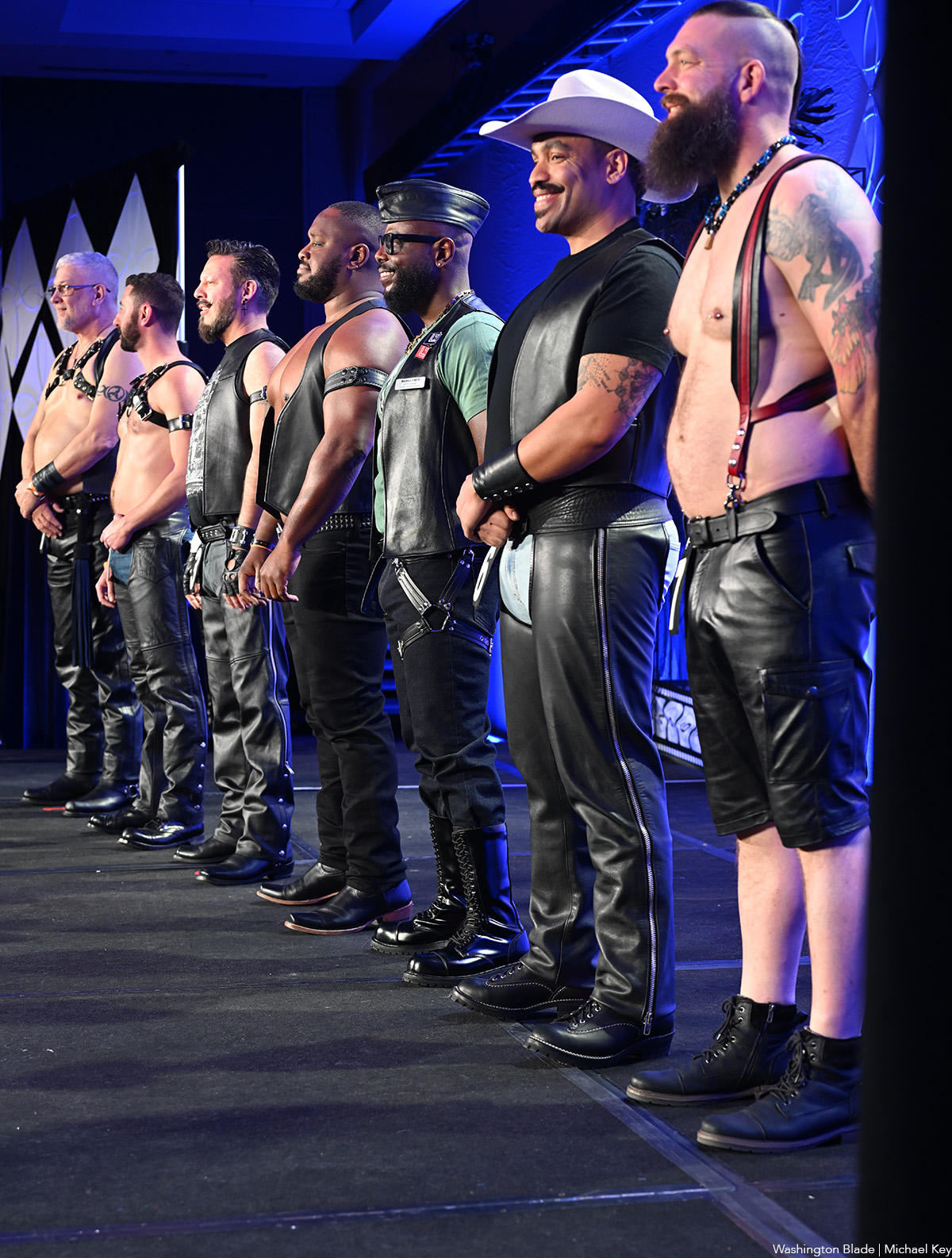
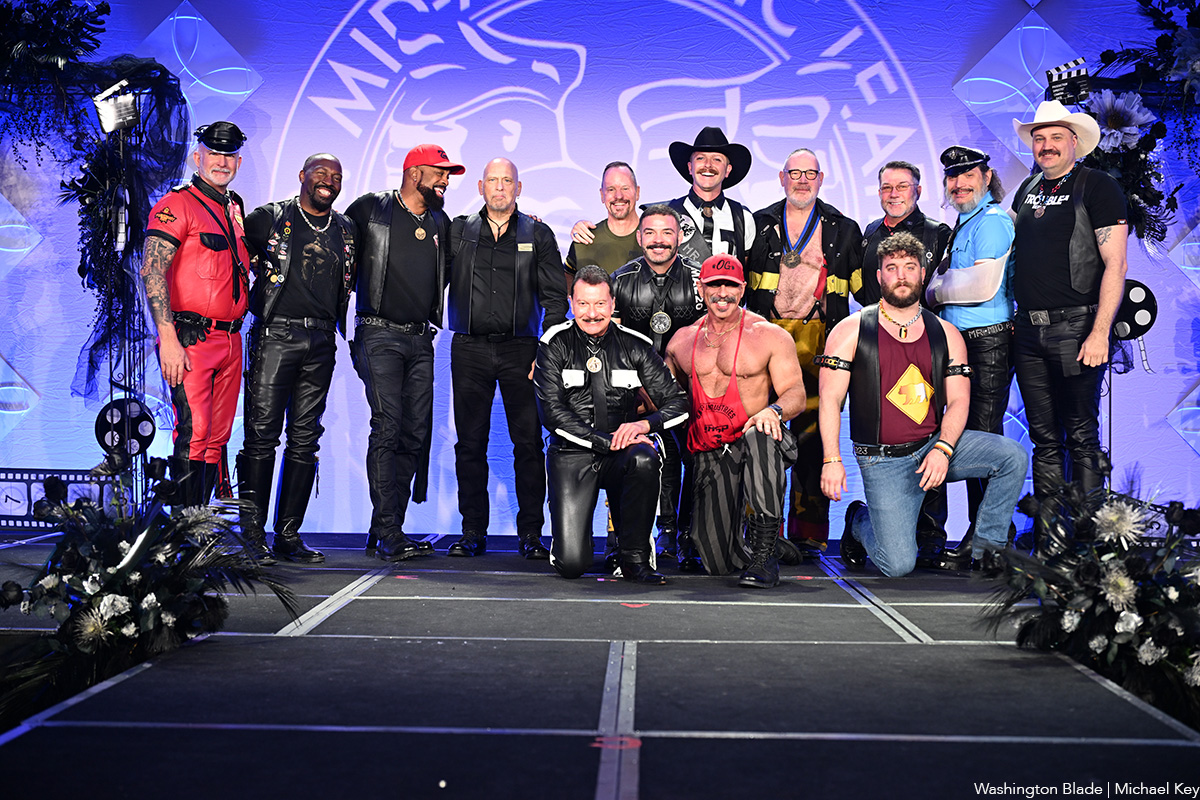
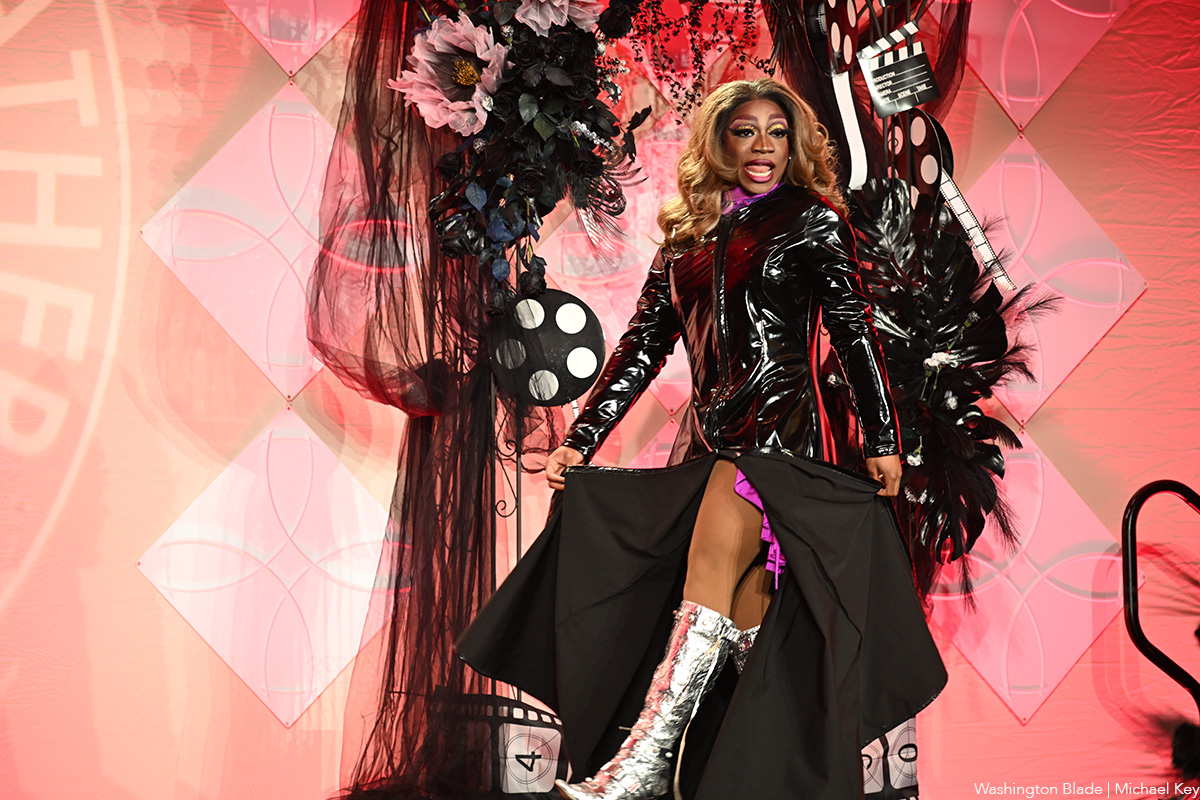
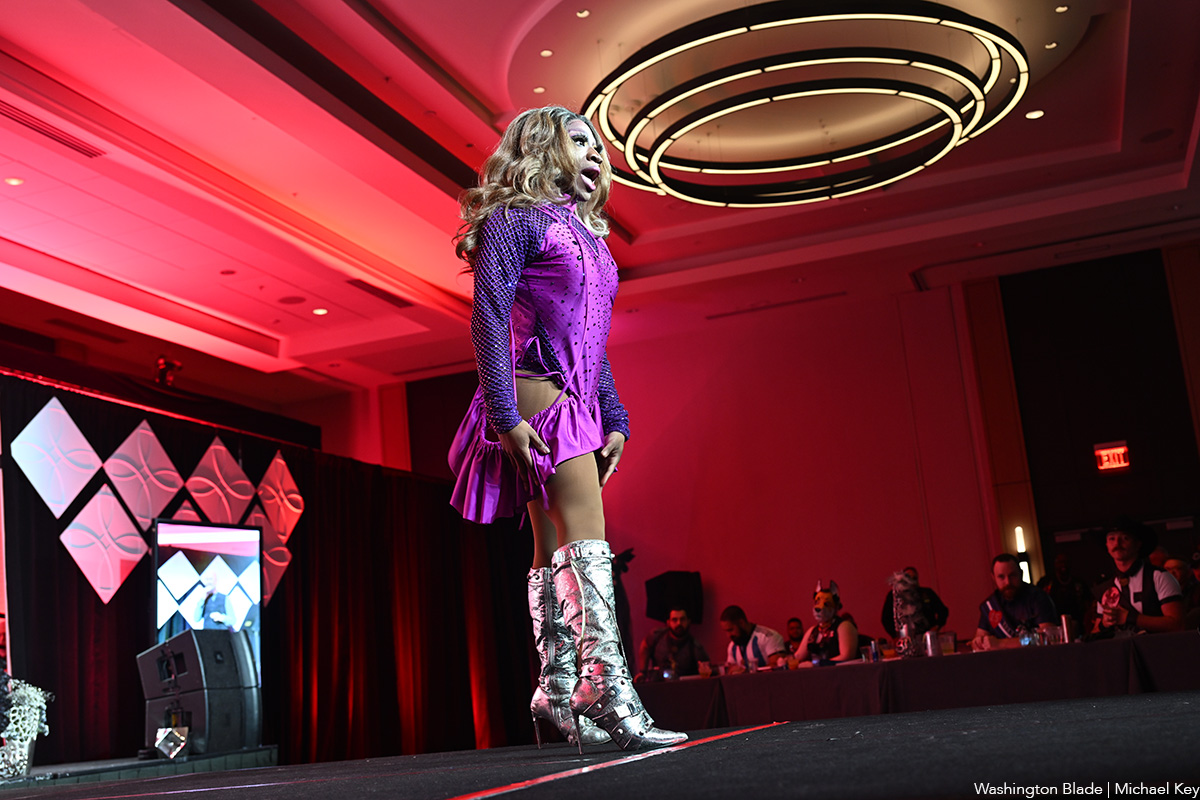
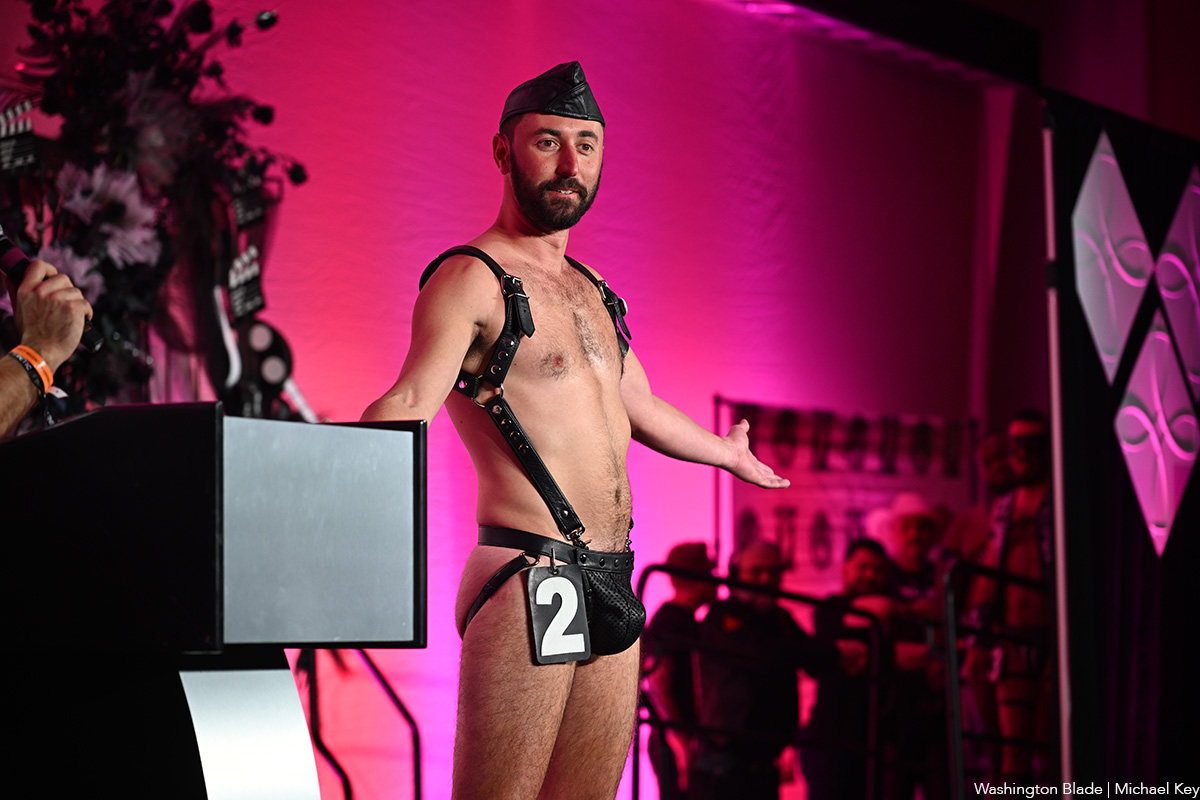
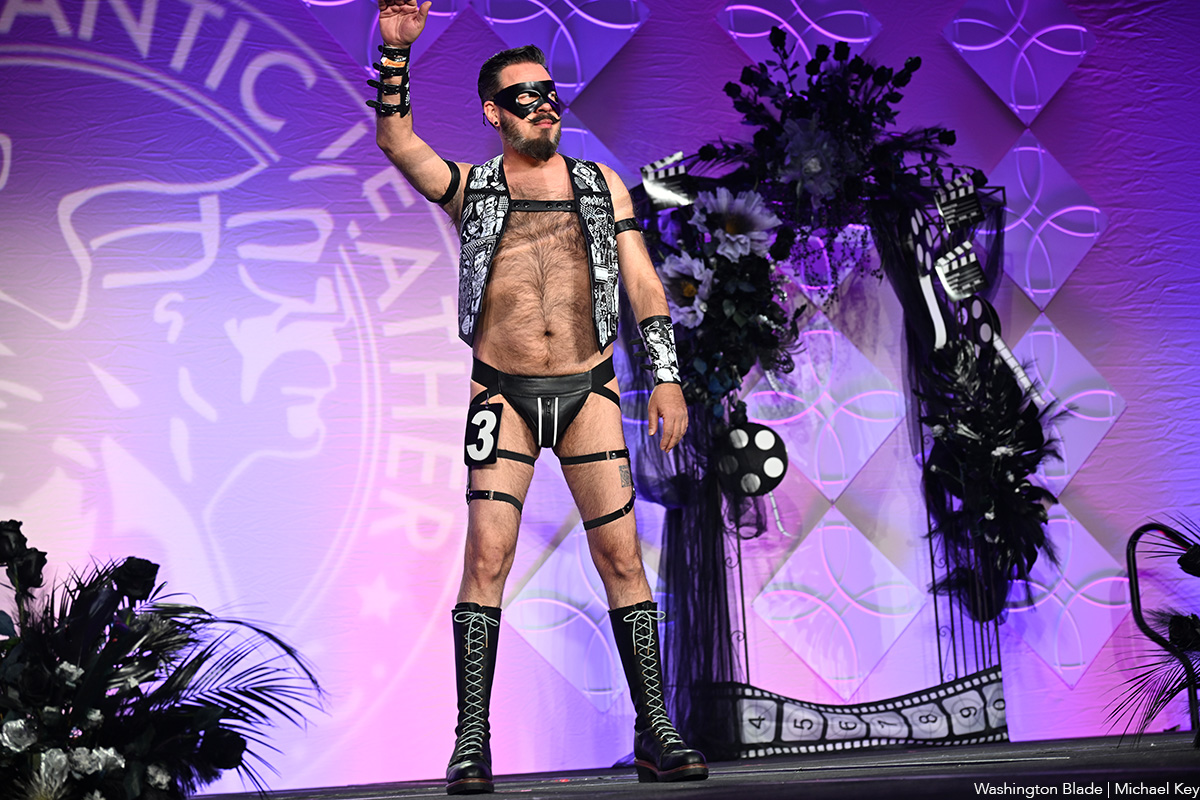
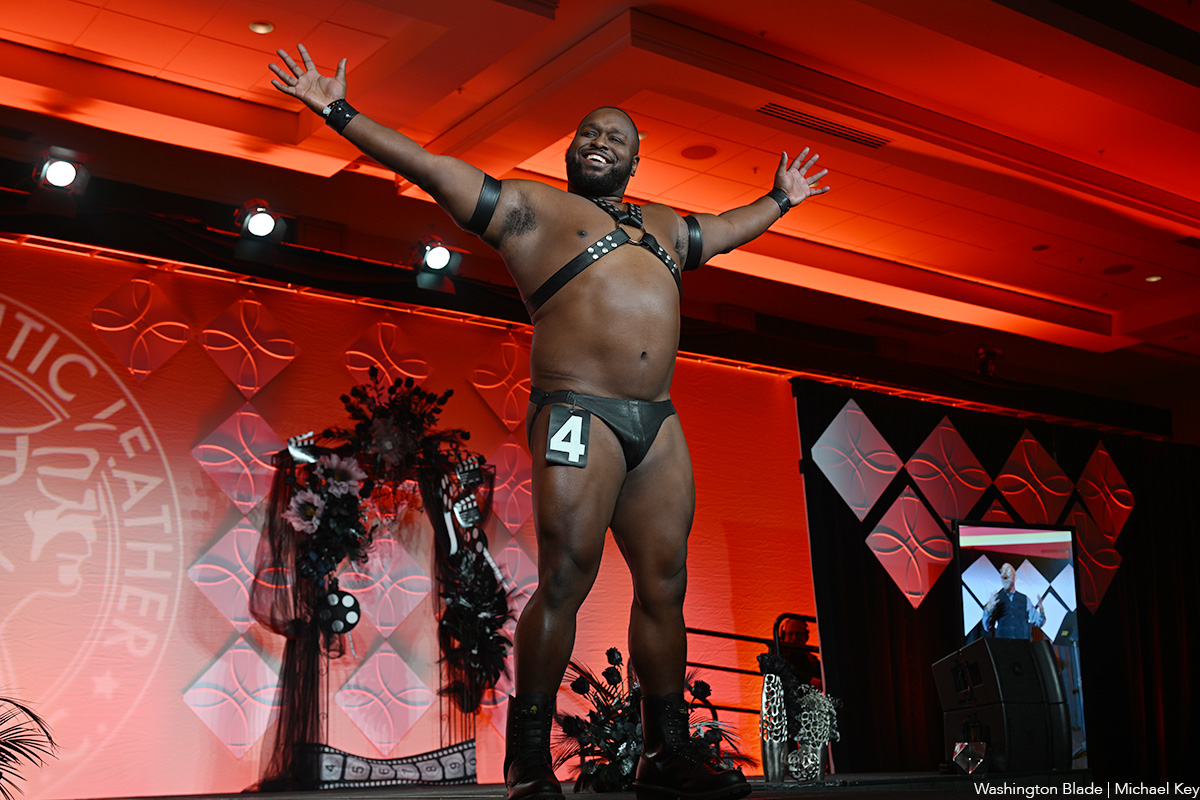
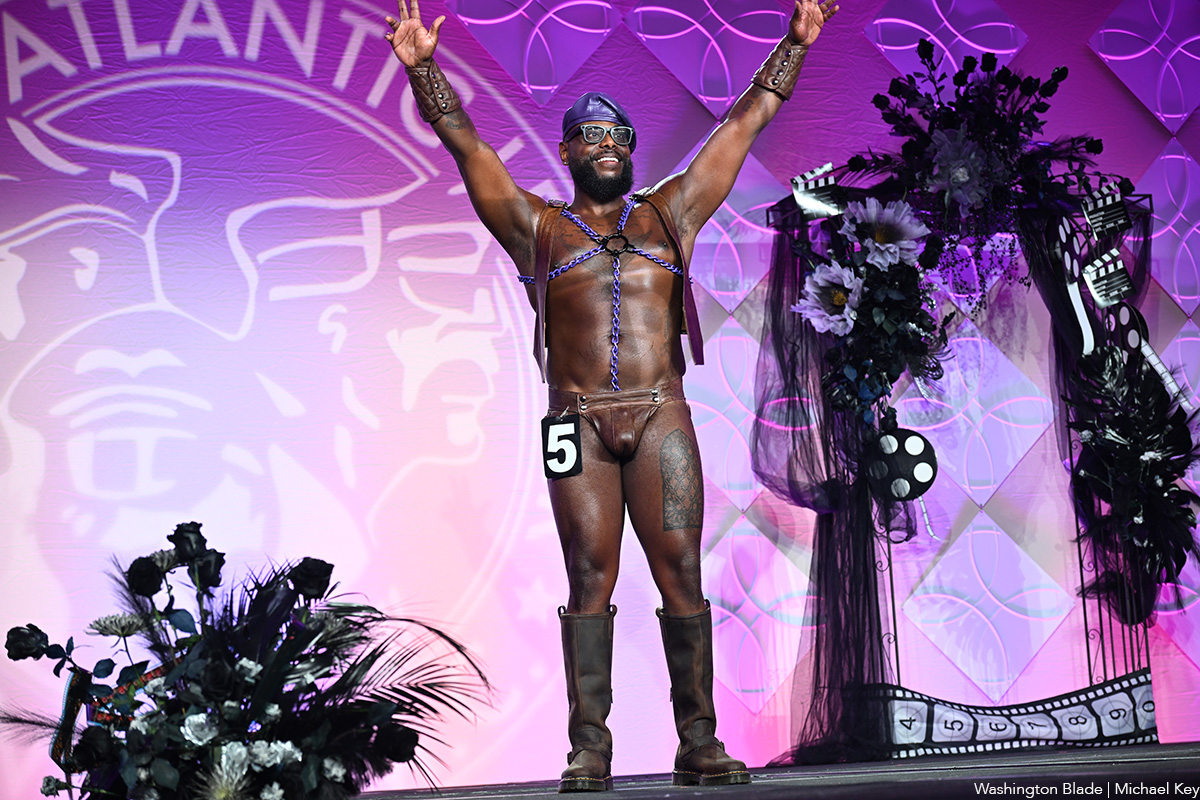
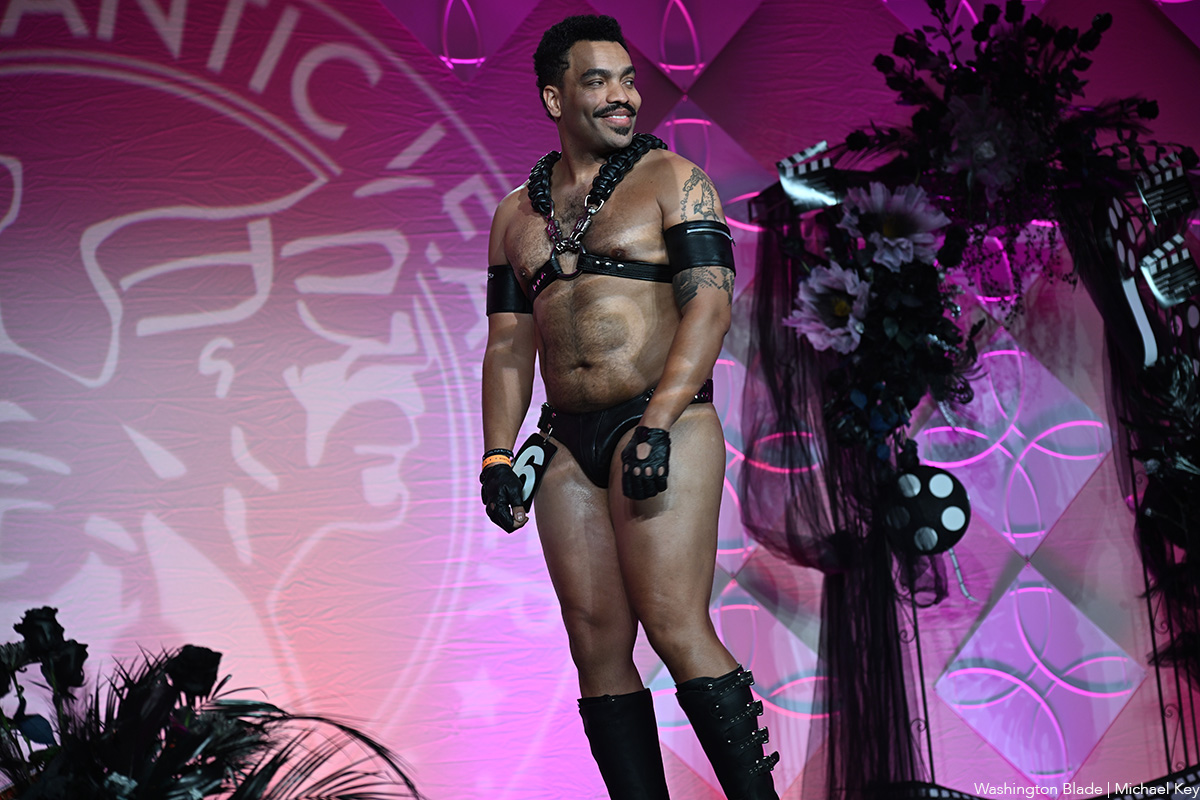
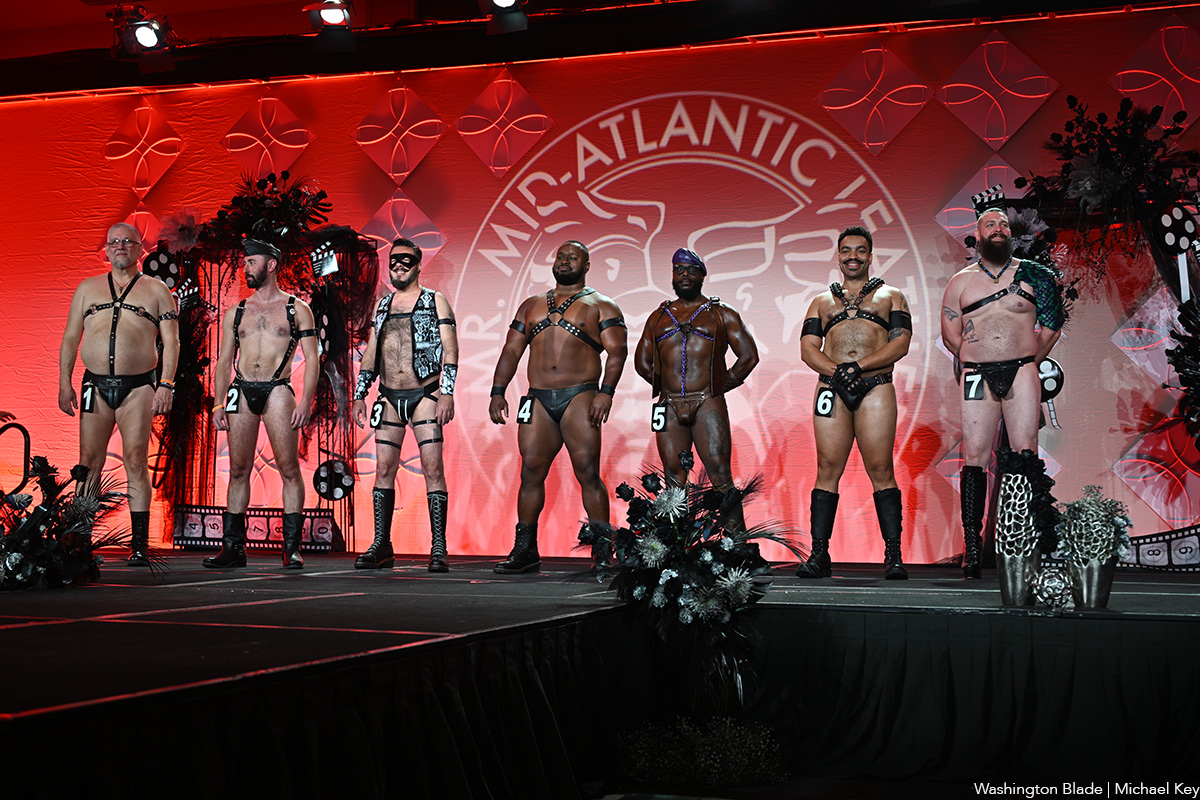
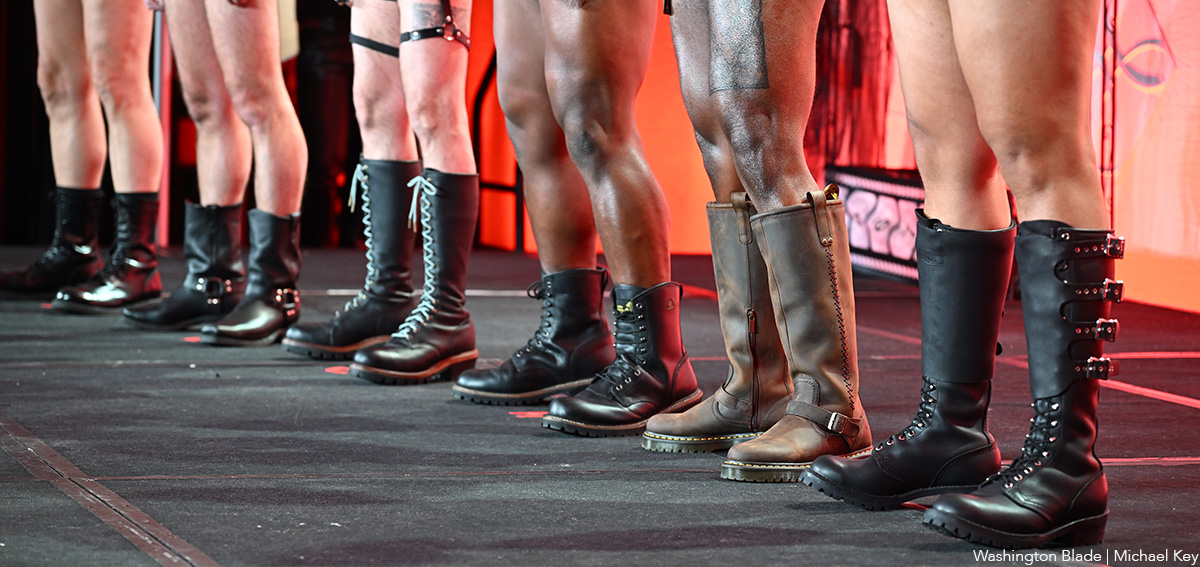
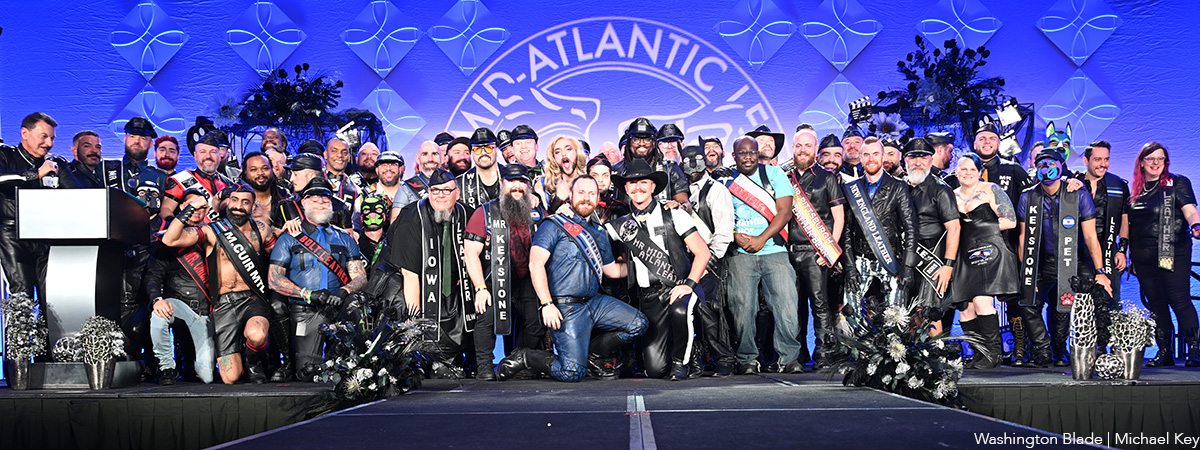
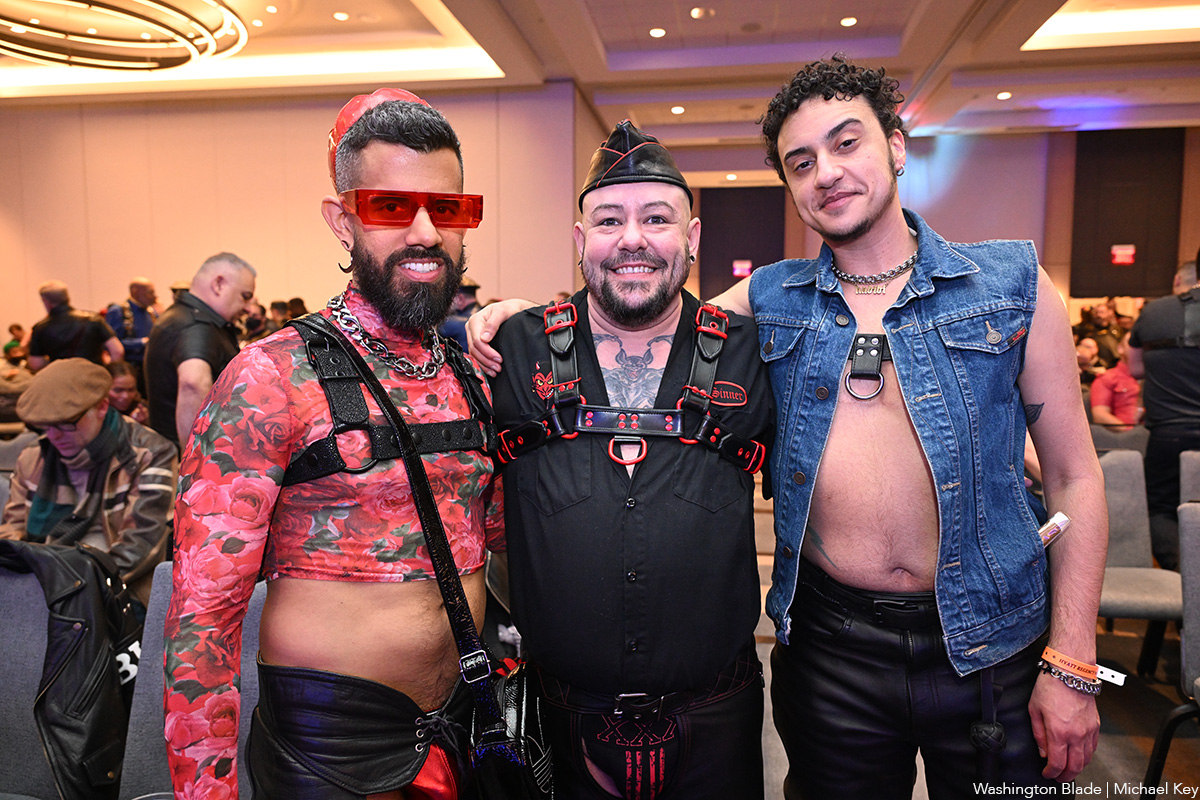
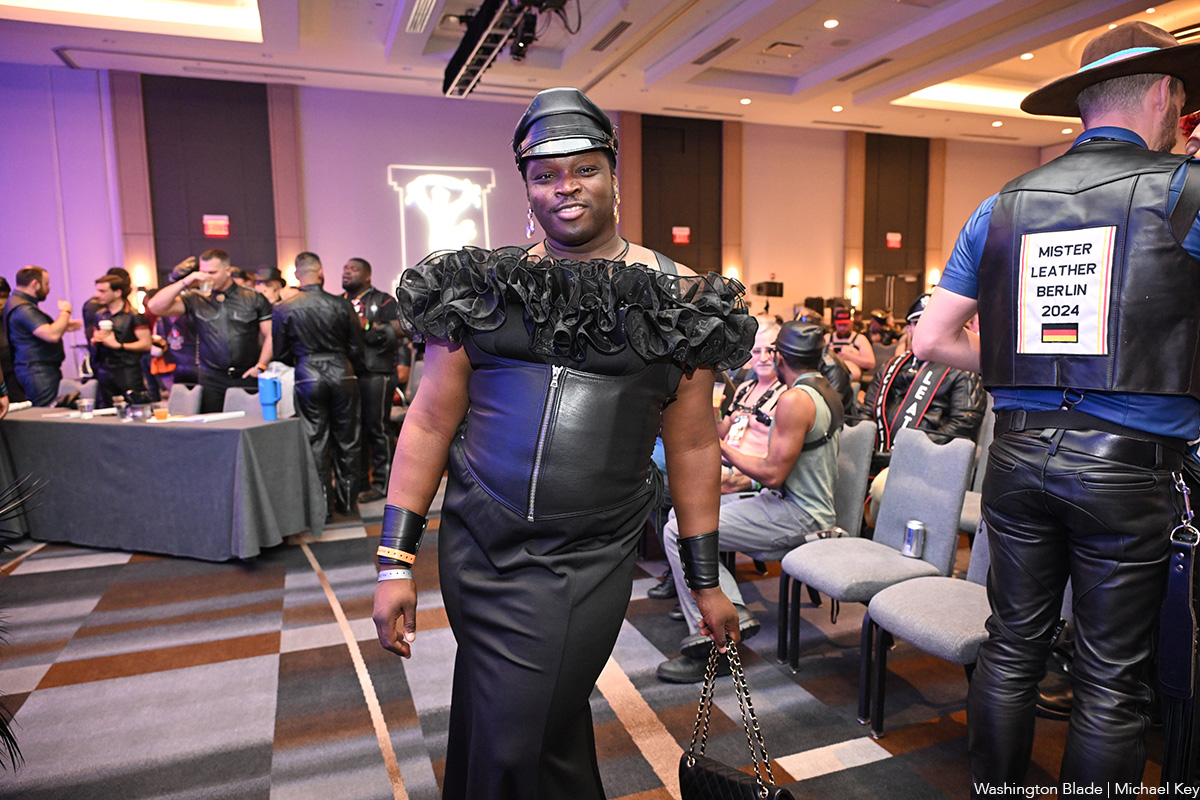
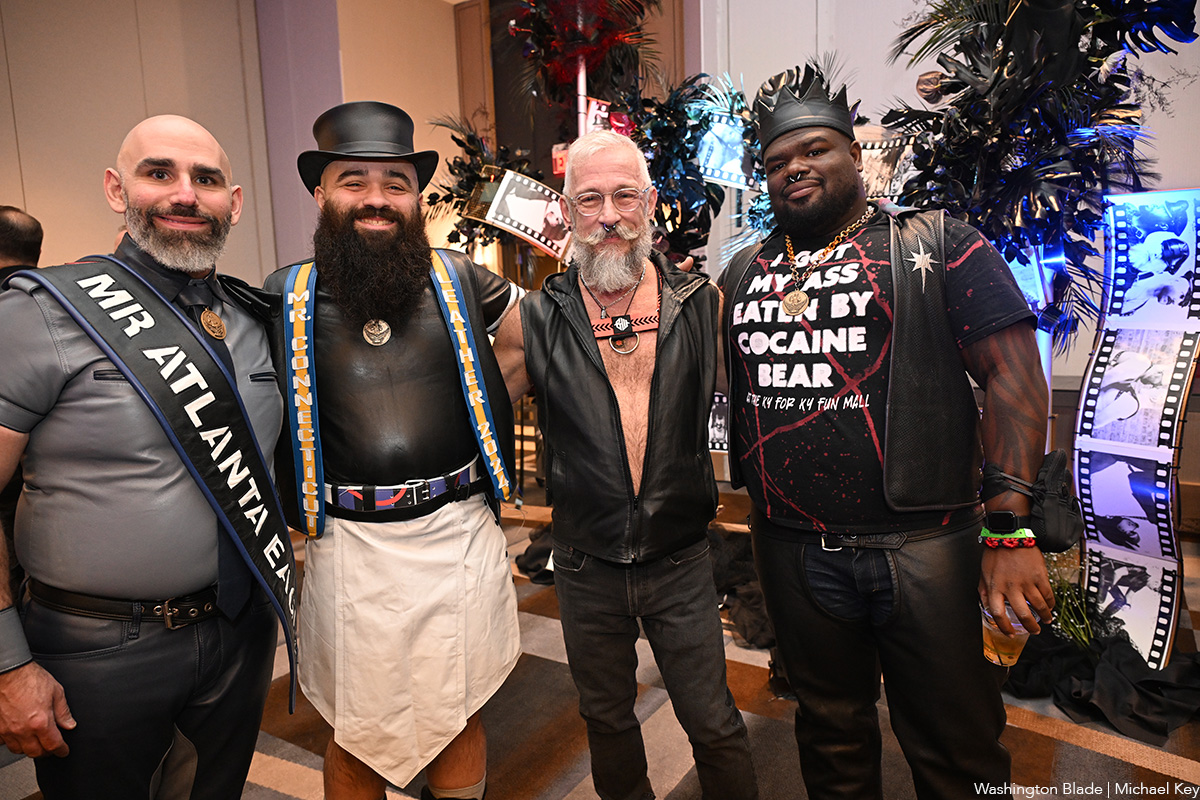
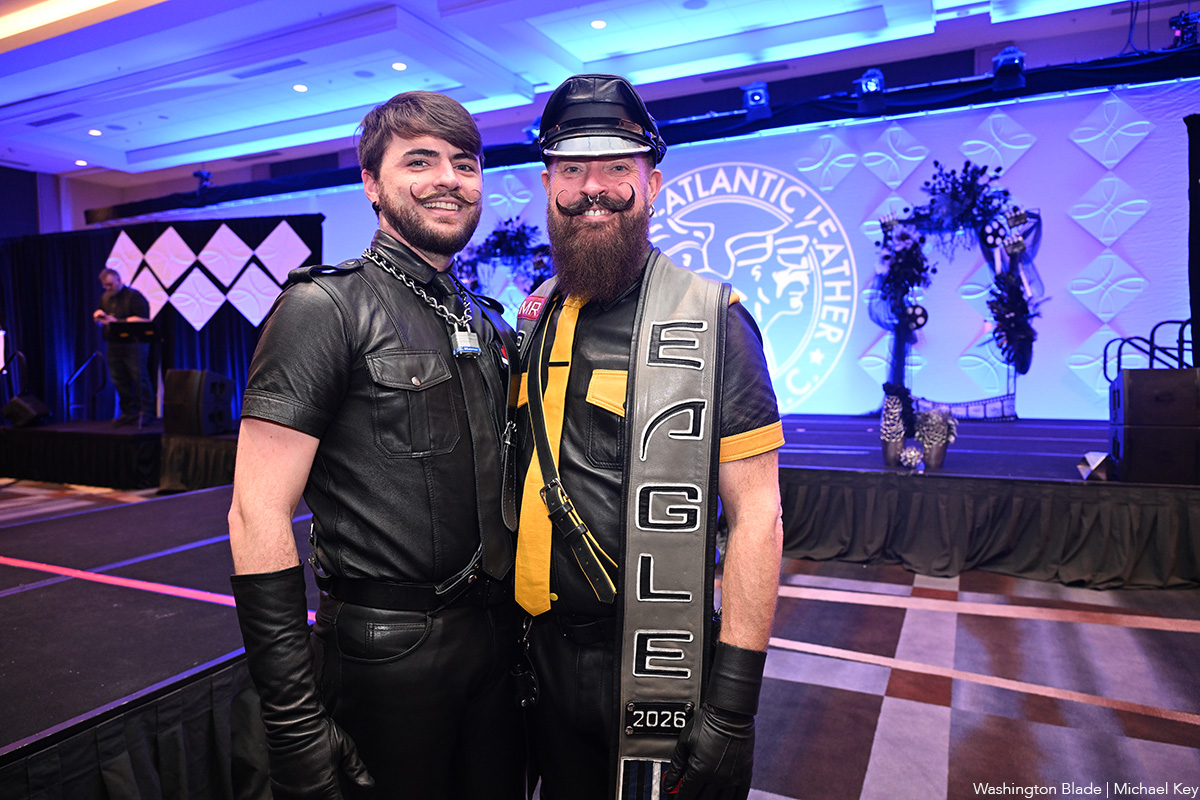
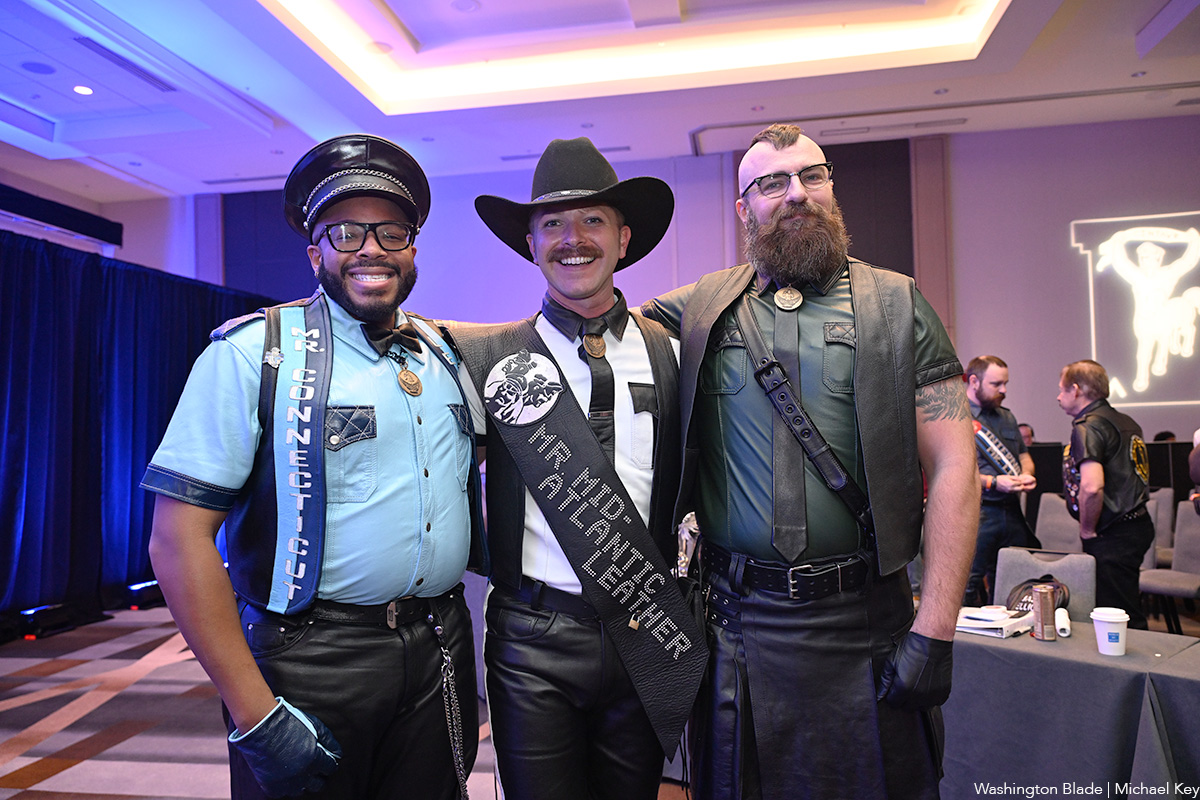
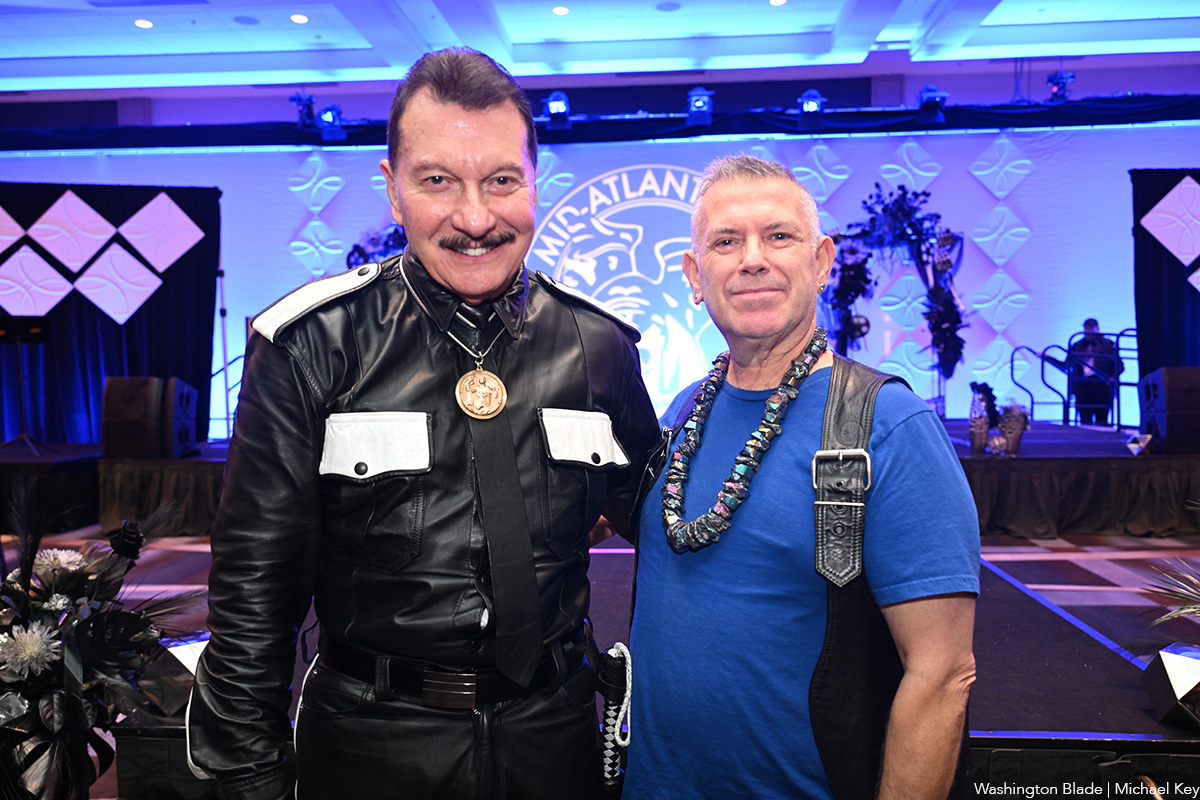
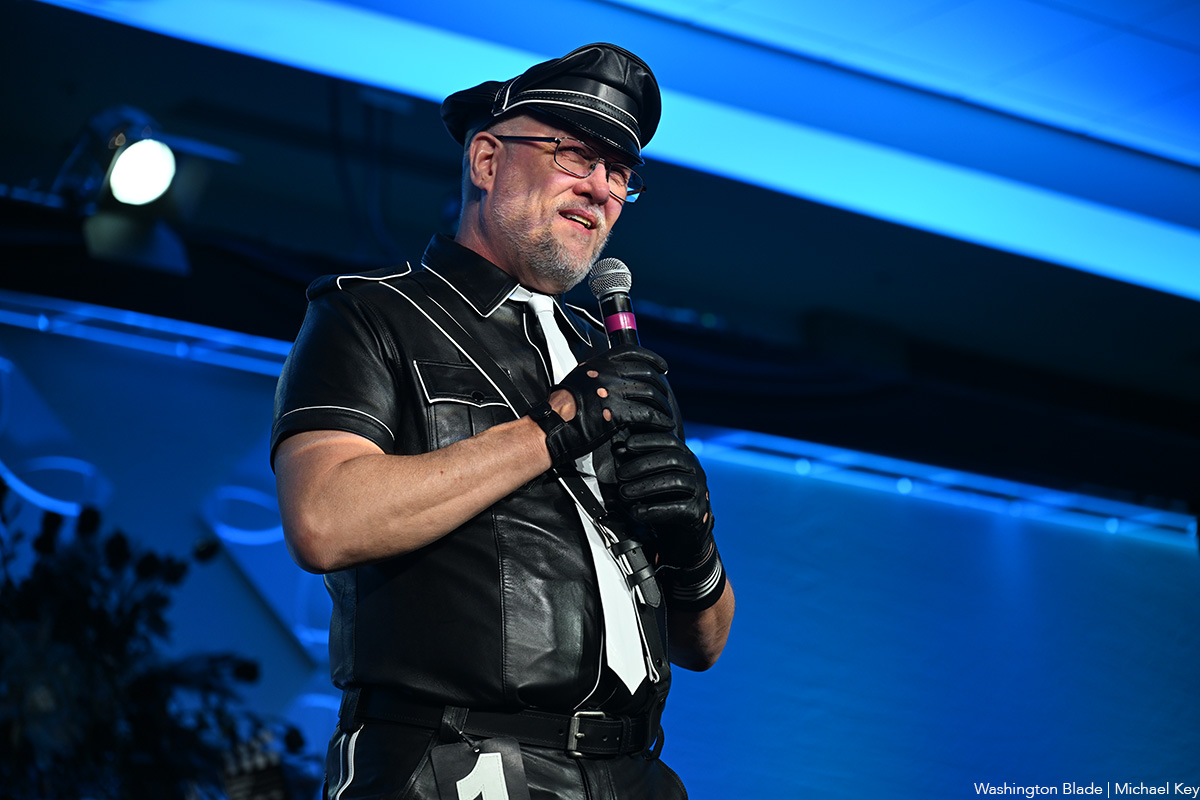
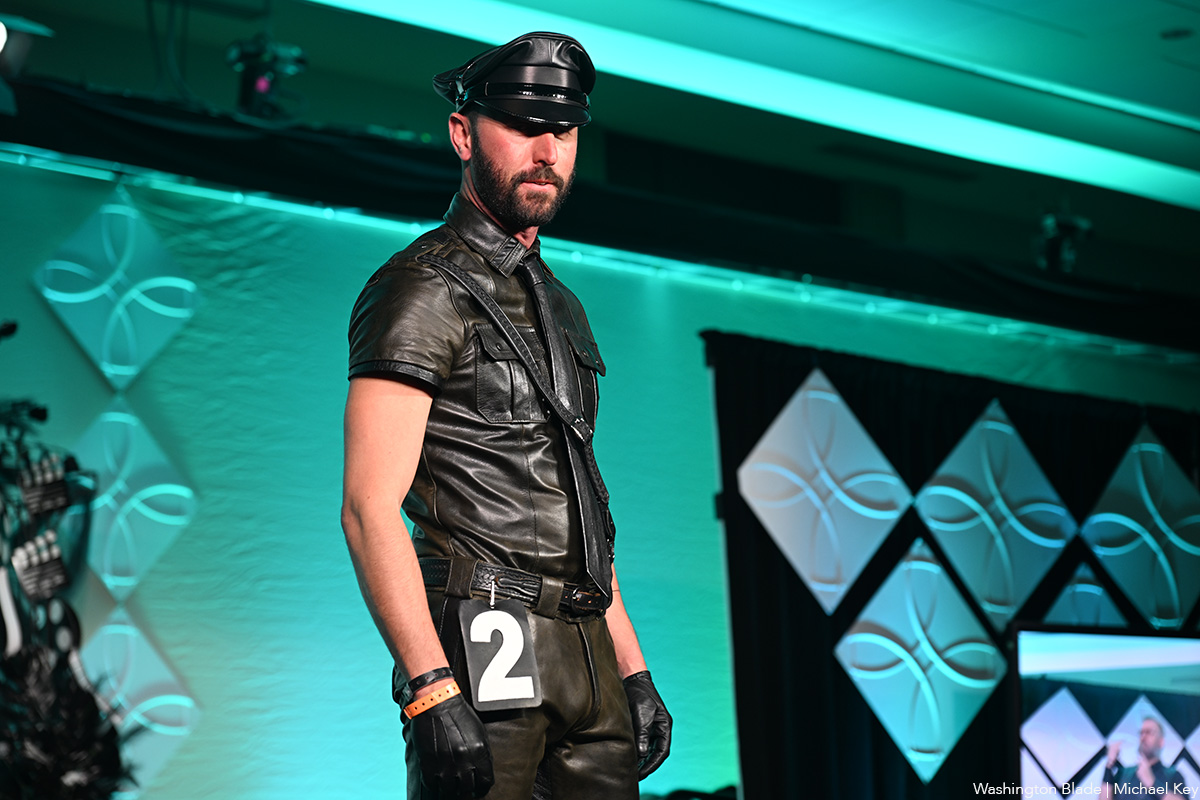
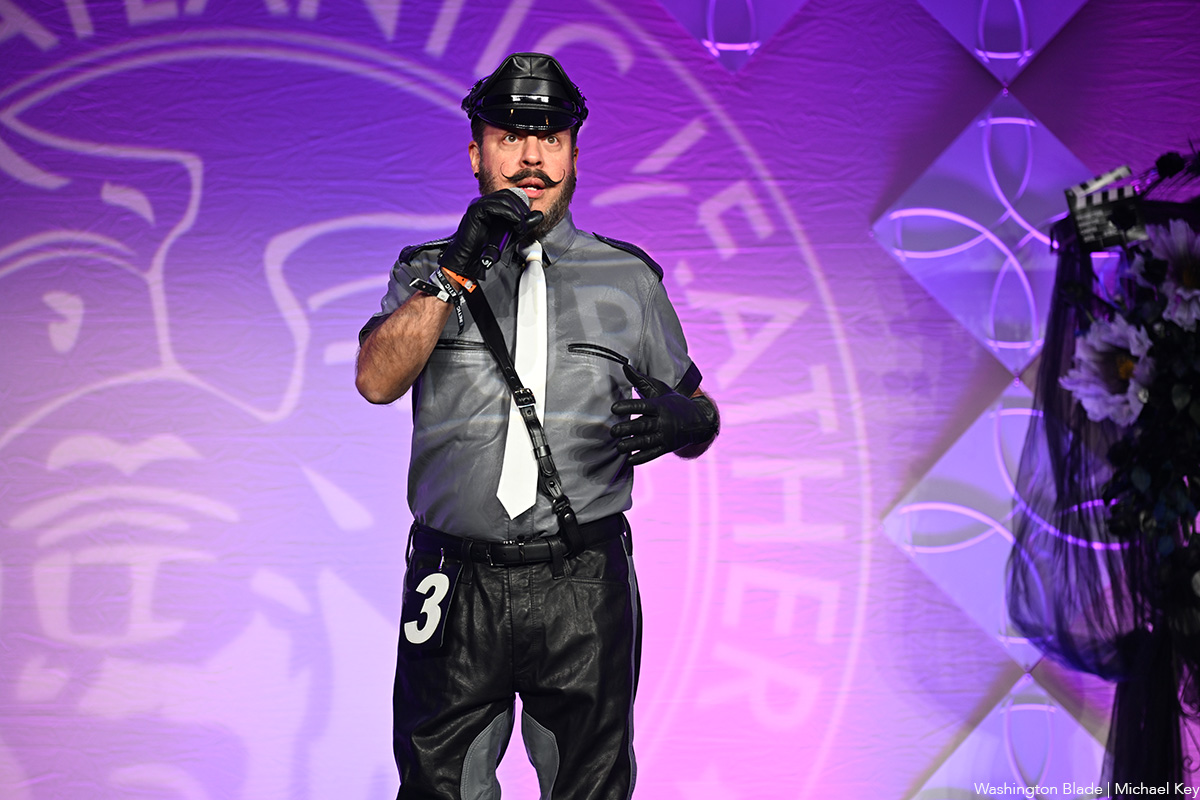
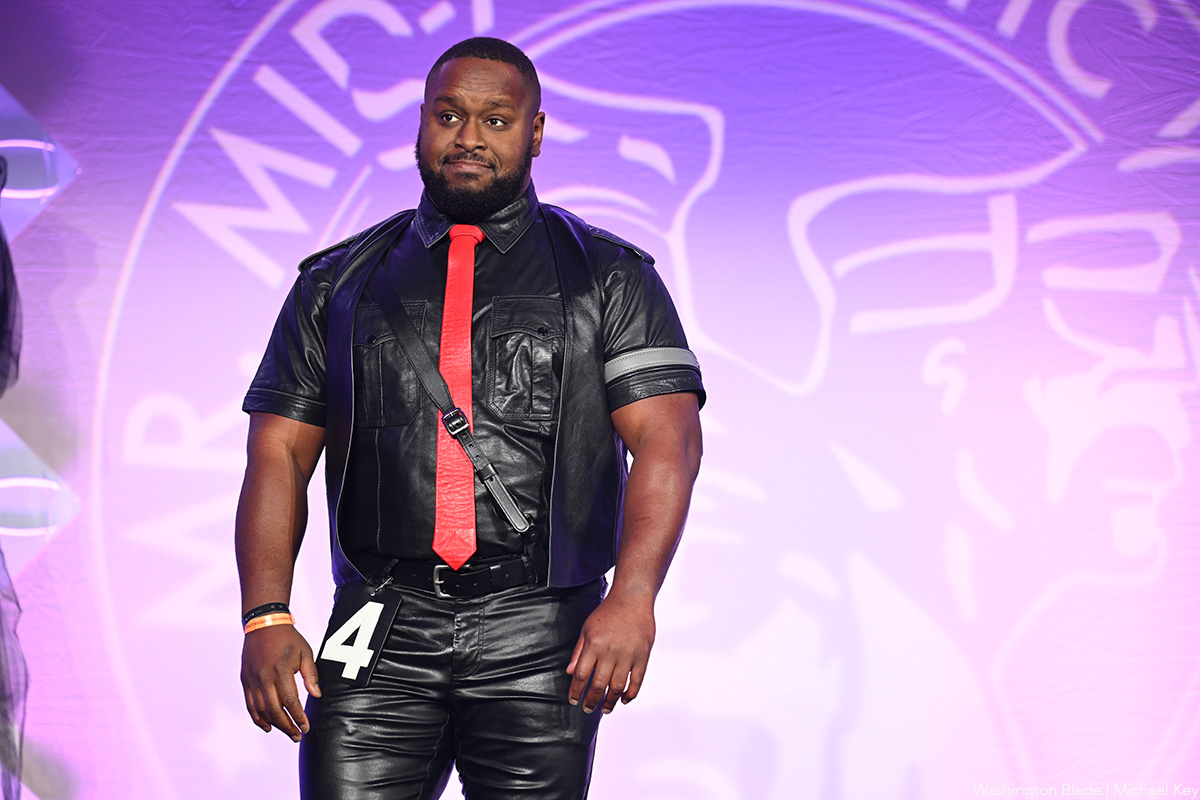
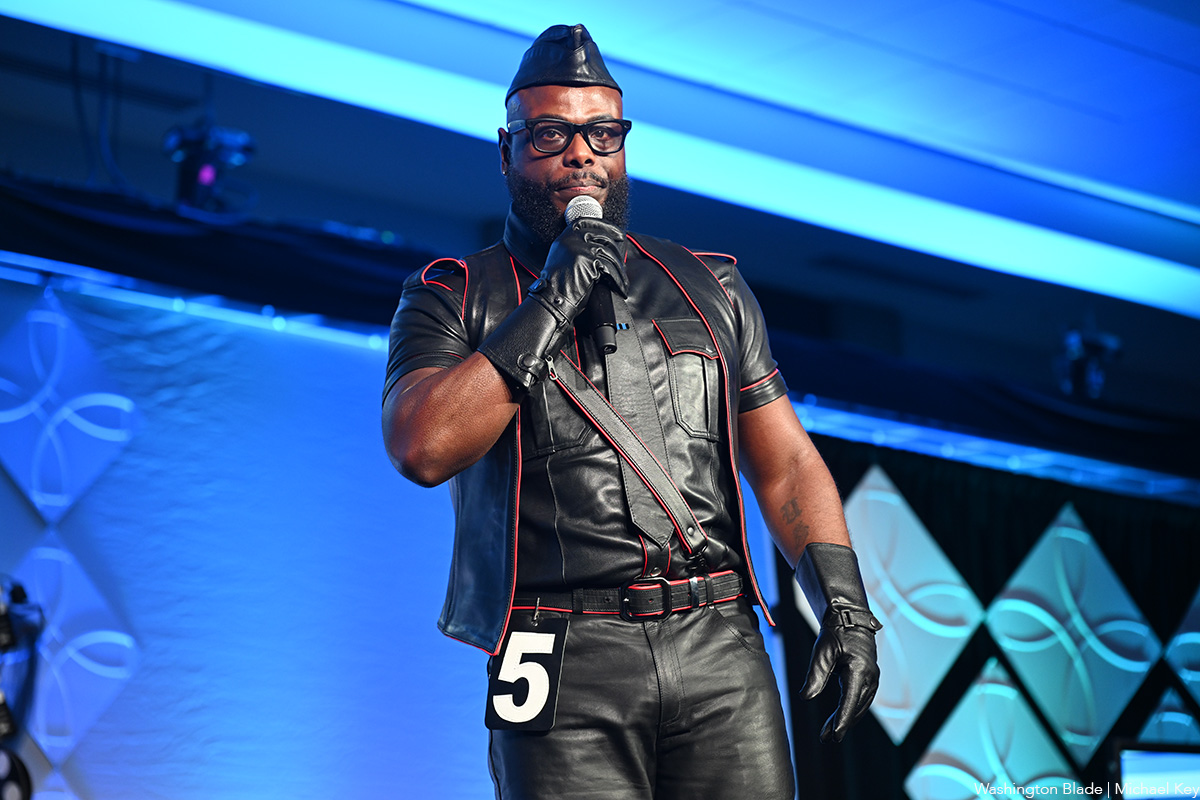
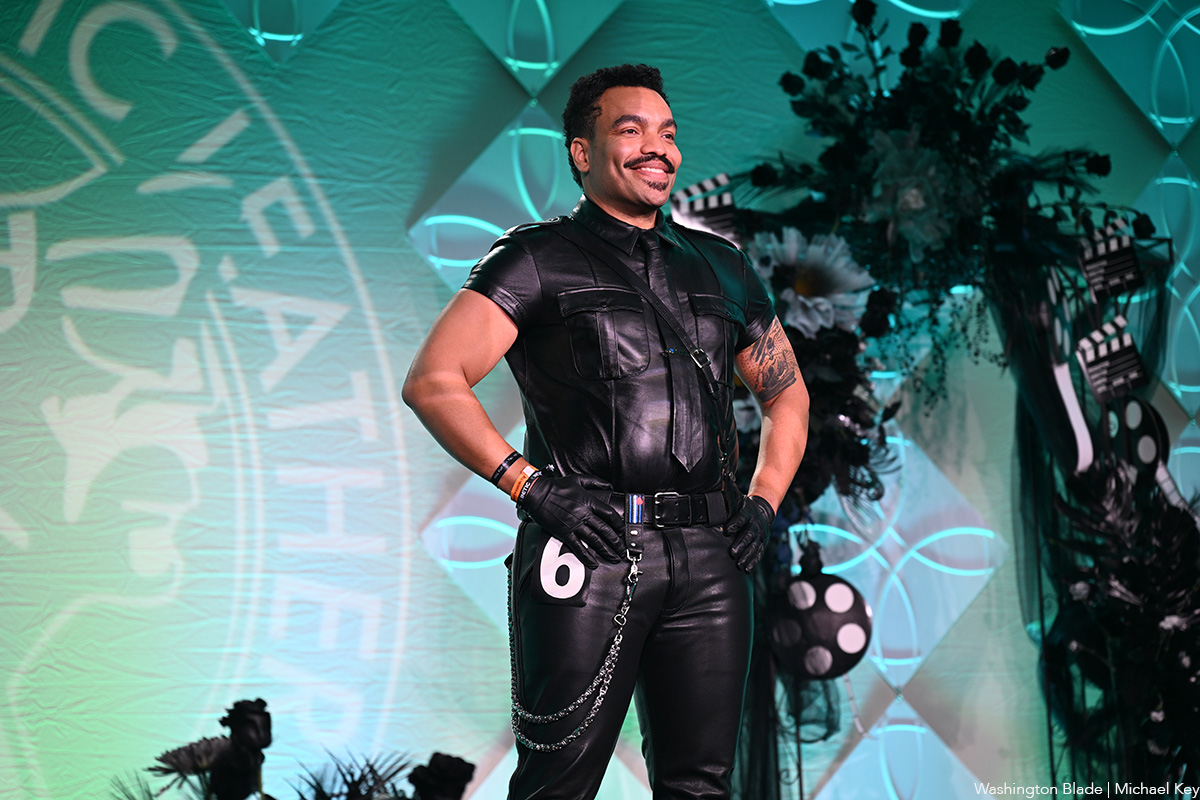
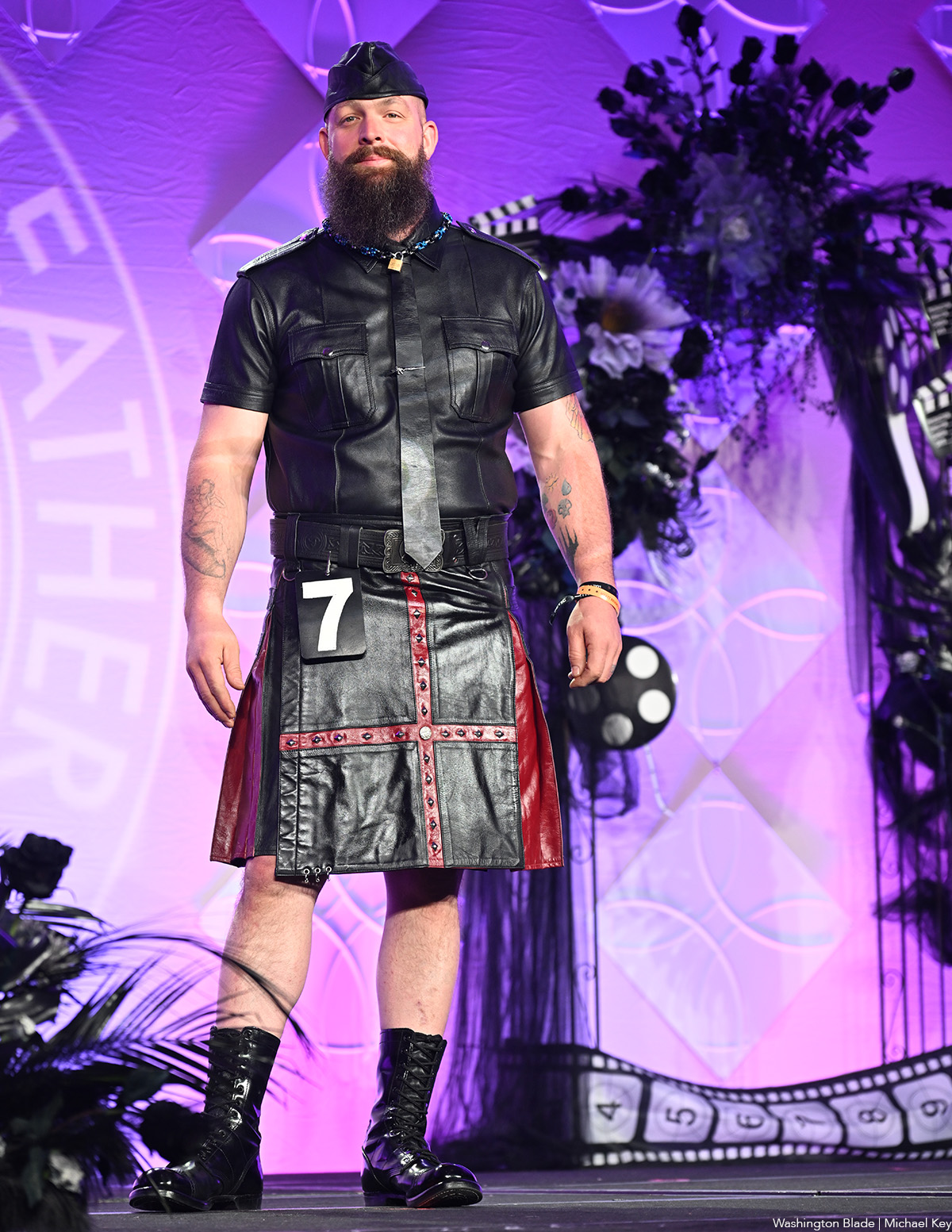
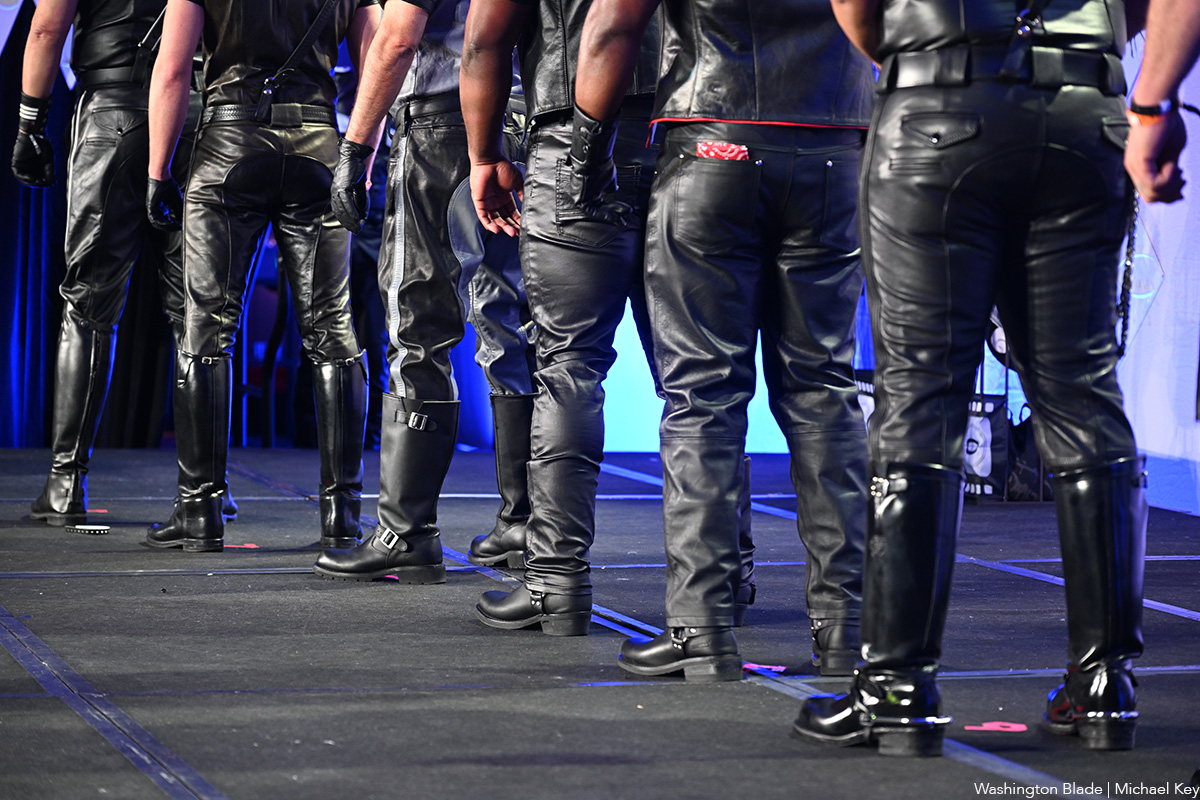
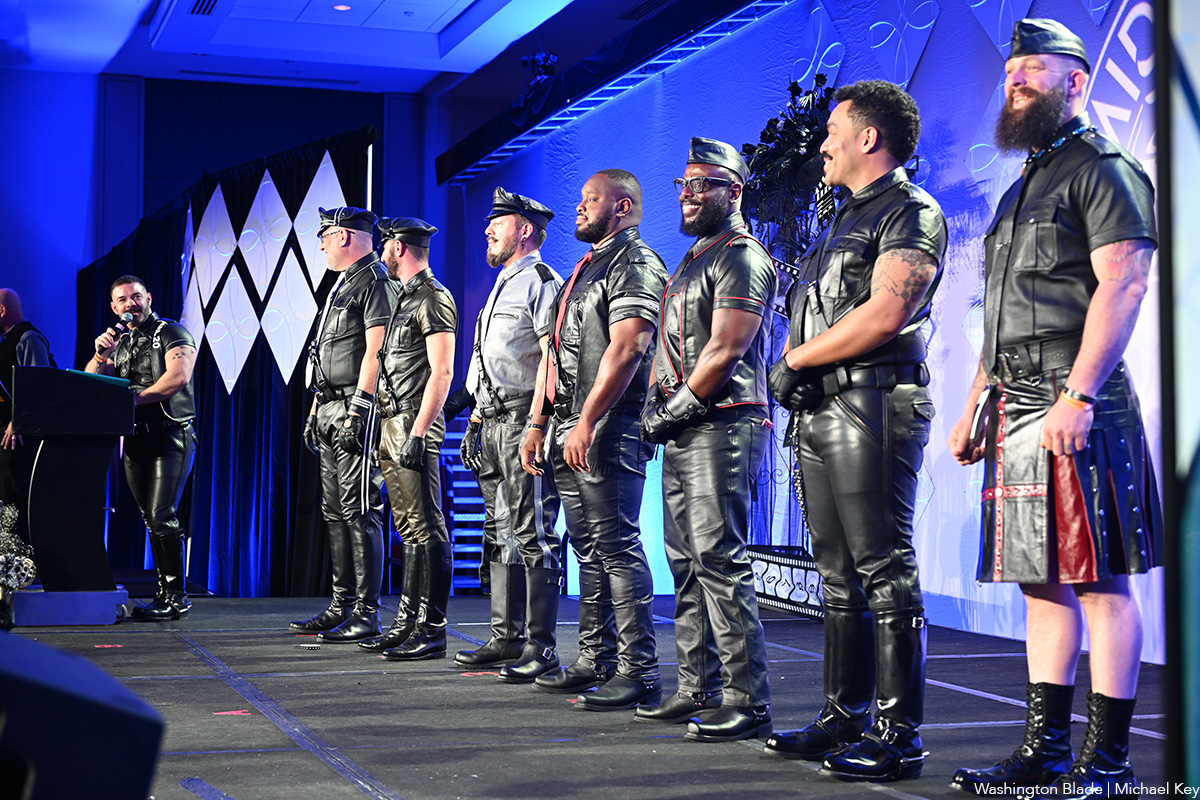
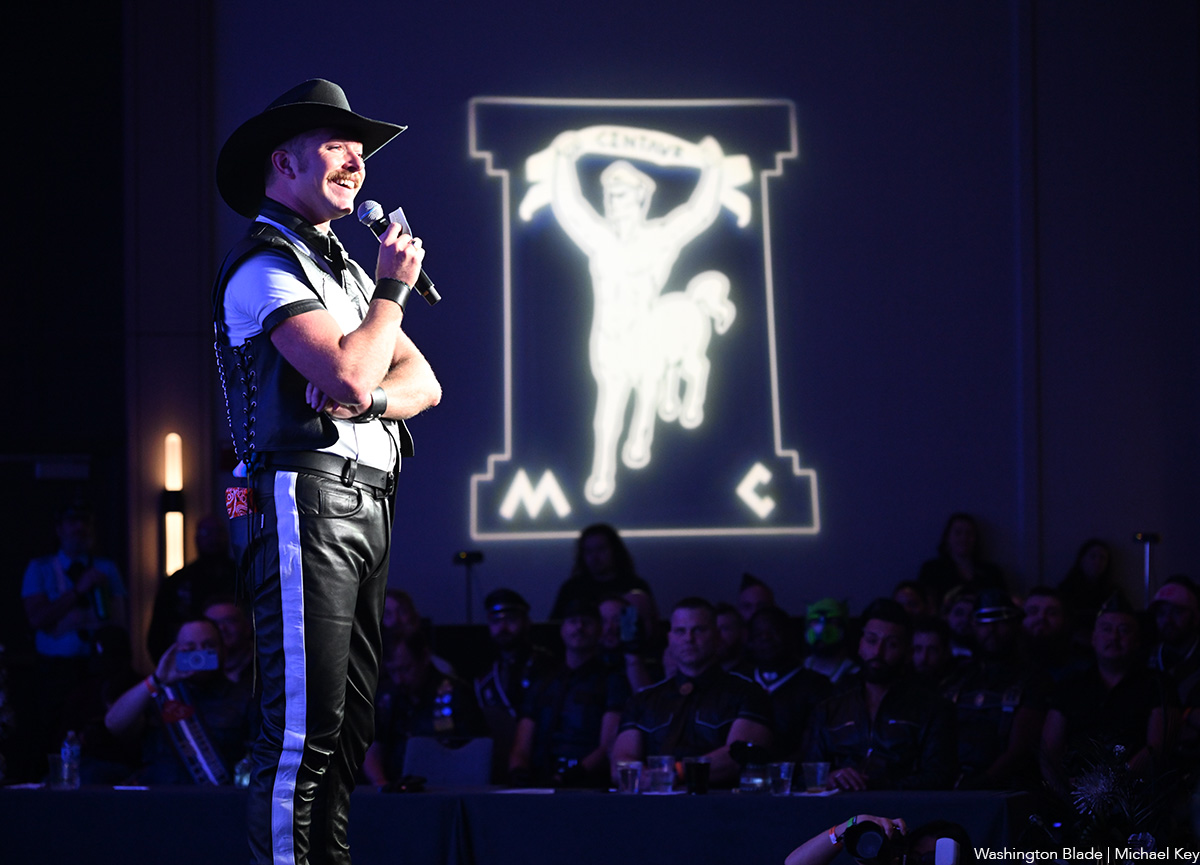
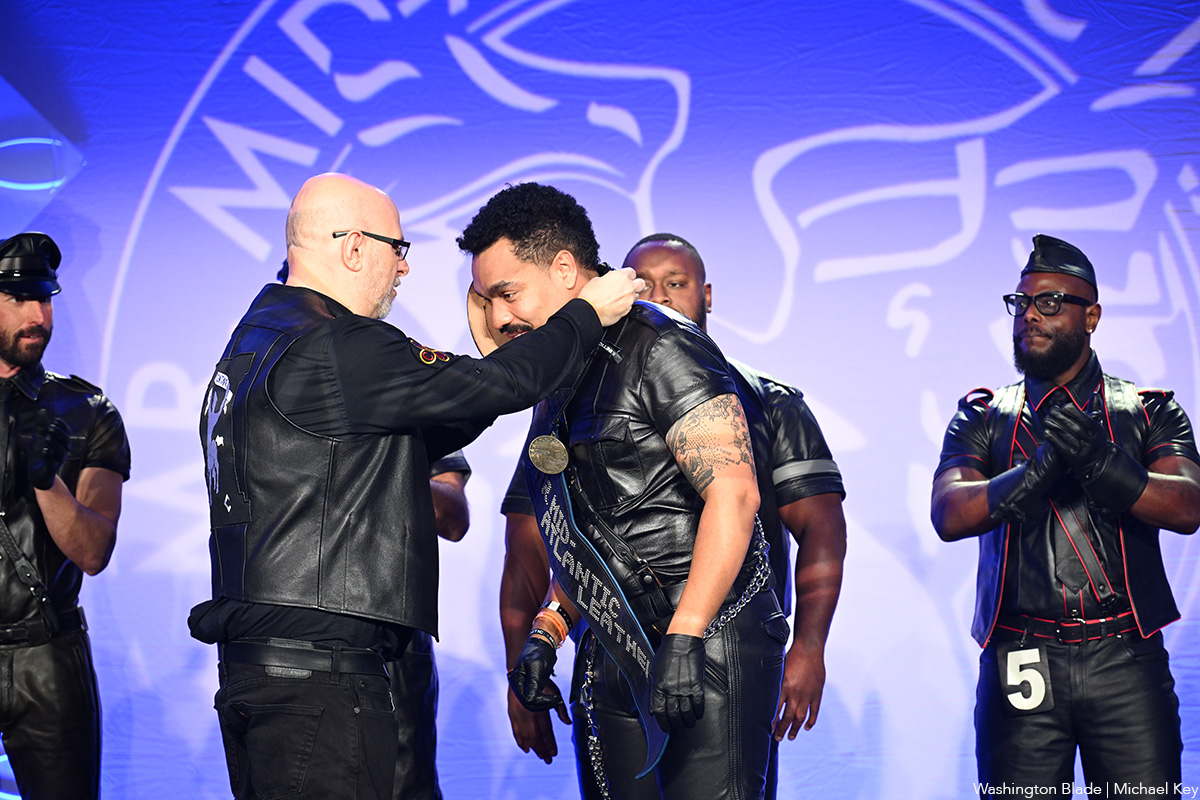
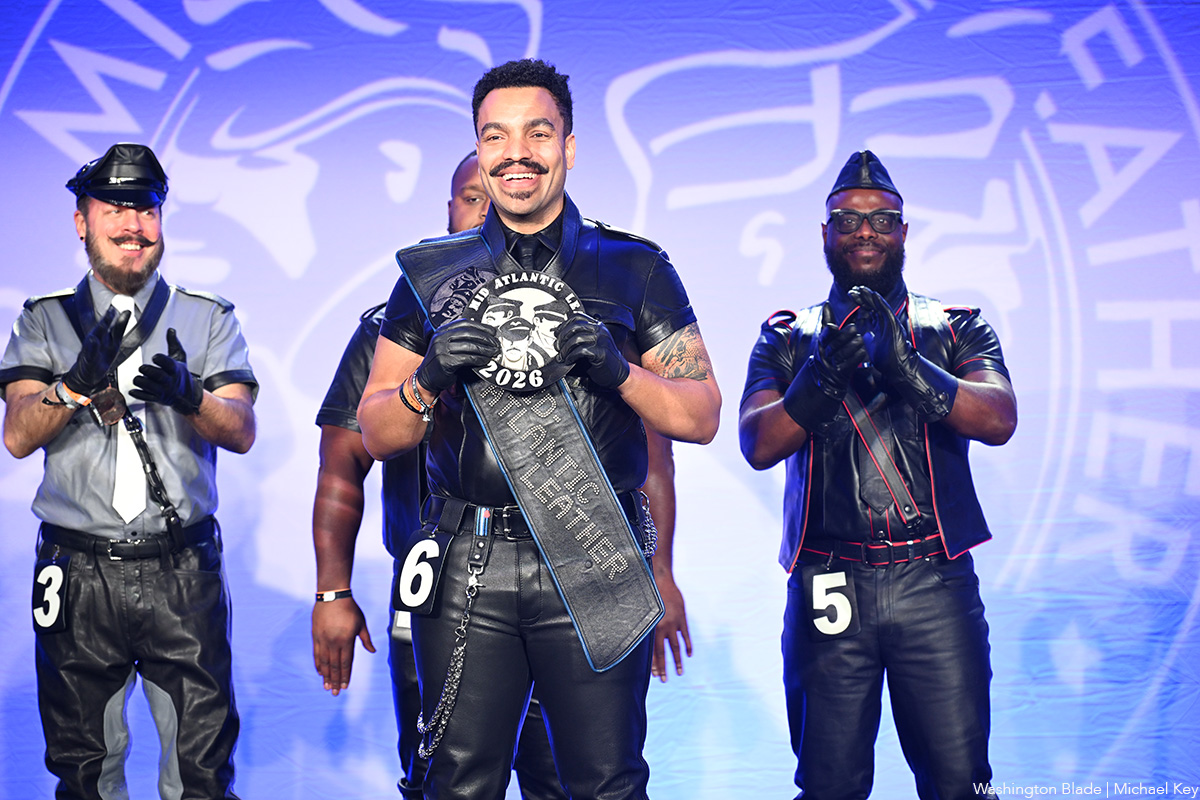
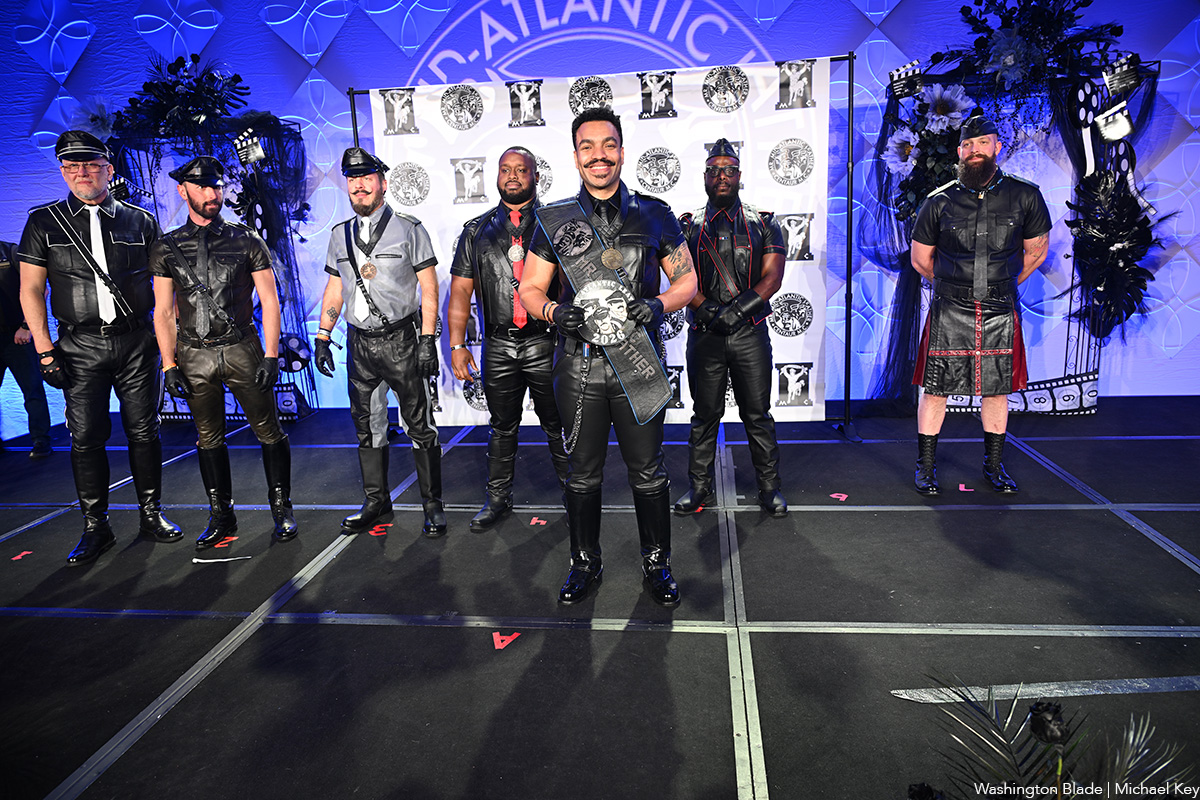
Theater
Voiceless ‘Antony & Cleopatra’ a spectacle of operatic proportions
Synetic production pulls audience into grips of doomed lovers’ passion
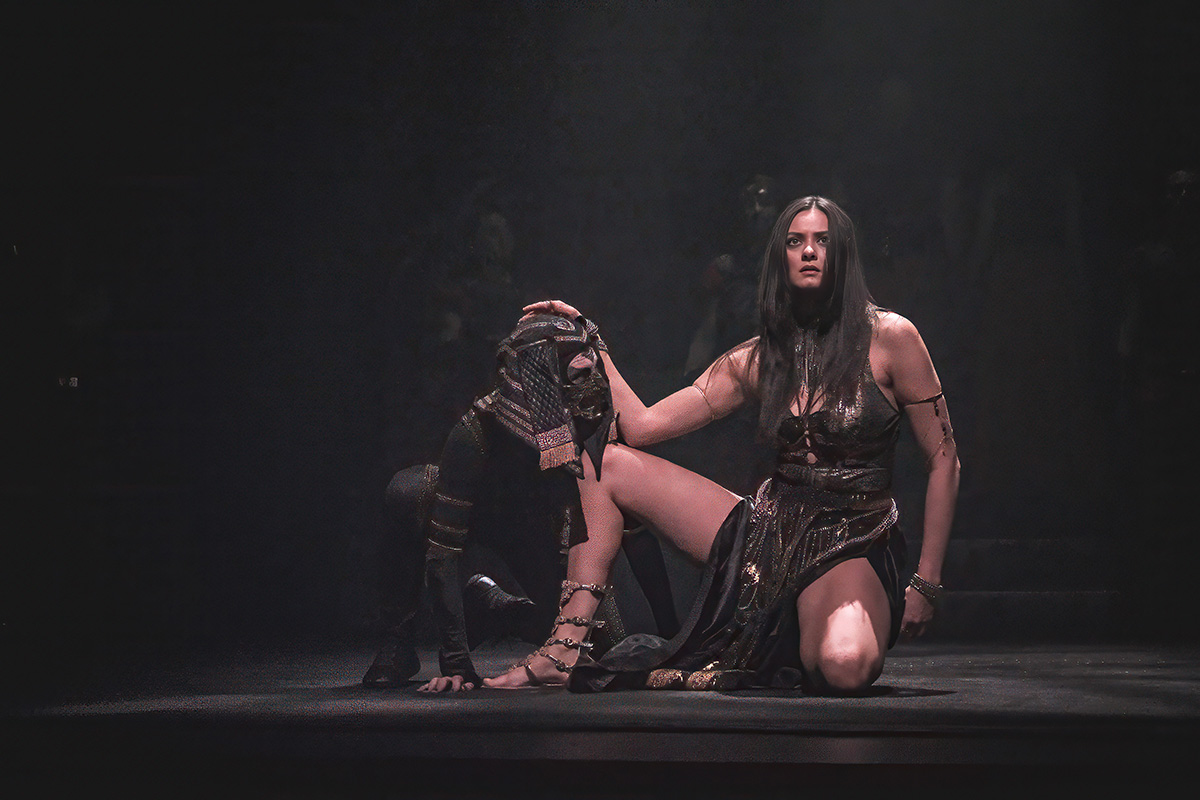
‘Antony & Cleopatra’
Through Jan. 25
Synetic Theater at
Shakespeare Theatre Company’s Klein Theatre
450 7th St., N.W.
Synetictheater.org
A spectacle of operatic proportions, Synetic Theater’s “Antony & Cleopatra” is performed entirely voiceless. An adaptation of the Bard’s original (a play bursting with wordplay, metaphors, and poetic language), the celebrated company’s production doesn’t flinch before the challenge.
Staged by Paata Tsikurishvili and choreographed by Irina Tsikurishvili, this worthy remount is currently playing at Shakespeare Theatre Company’s Klein Theatre, the same venue where it premiered 10 years ago. Much is changed, including players, but the usual inimitable Synectic energy and ingenuity remain intact.
As audiences file into the Klein, they’re met with a monumental pyramid bathed in mist on a dimly lit stage. As the lights rise, the struggle kicks off: Cleopatra (Irina Kavsadze) and brother Ptolemy (Natan-Maël Gray) are each vying for the crown of Egypt. Alas, he wins and she’s banished from Alexandria along with her ethereal black-clad sidekick Mardian (Stella Bunch); but as history tells us, Cleopatra soon makes a triumphant return rolled in a carpet.
Meanwhile, in the increasingly dangerous Rome, Caesar (memorably played by Tony Amante) is assassinated by a group of senators. Here, his legendary Ides of March murder is rather elegantly achieved by silver masked politicians, leaving the epic storytelling to focus on the titular lovers.
The fabled couple is intense. As the Roman general Antony, Vato Tsikurishvili comes across as equal parts warrior, careerist, and beguiled lover. And despite a dose of earthiness, it’s clear that Kavsadze’s Cleopatra was born to be queen.
Phil Charlwood’s scenic design along with Colin K. Bills’ lighting cleverly morph the huge pyramidic structure into the throne of Egypt, the Roman Senate, and most astonishingly as a battle galley crashing across the seas with Tsikurishvili’s Antony ferociously at the helm.
There are some less subtle suggestions of location and empire building in the form of outsized cardboard puzzle pieces depicting the Mediterranean and a royal throne broken into jagged halves, and the back-and-forth of missives.
Of course, going wordless has its challenges. Kindly, Synectic provides a compact synopsis of the story. I’d recommend coming early and studying that page. With changing locations, lots of who’s who, shifting alliances, numerous war skirmishes, and lack of dialogue, it helps to get a jump on plot and characters.
Erik Teague’s terrific costume design is not only inspired but also helpful. Crimson red, silver, and white say Rome; while all things Egyptian have a more exotic look with lots of gold and diaphanous veils, etc.
When Synetic’s voicelessness works, it’s masterful. Many hands create the magic: There’s the direction, choreography, design, and the outrageously committed, sinewy built players who bring it to life through movement, some acrobatics, and the remarkable sword dancing using (actual sparking sabers) while twirling to original music composed by Konstantine Lortkipanidze.
Amid the tumultuous relationships and frequent battling (fight choreography compliments of Ben Cunis), moments of whimsy and humor aren’t unwelcome. Ptolemy has a few clownish bits as Cleopatra’s lesser sibling. And Antony’s powerful rival Octavian (ageless out actor Philip Fletcher) engages in peppy propaganda featuring a faux Cleopatra (played by Maryam Najafzada) as a less than virtuous queen enthusiastically engaged in an all-out sex romp.
When Antony and Cleopatra reach their respective ends with sword and adder, it comes almost as a relief. They’ve been through so much. And from start to finish, without uttering a word, Kavsadze and Tsikurishvili share a chemistry that pulls the audience into the grips of the doomed lovers’ palpable passion.
Out & About
Love board games and looking for love?
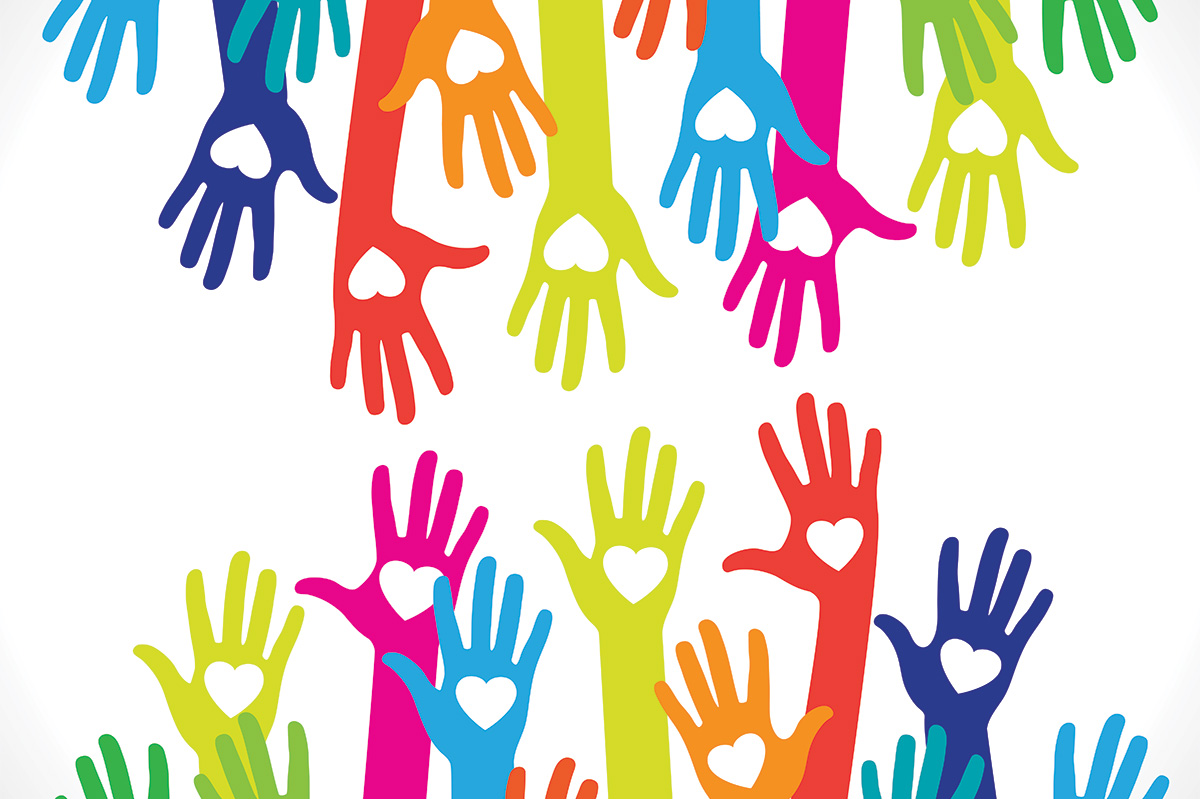
Quirk Events will host “Board Game Speed Dating for Gay Men” on Thursday, Jan. 22 at 7 p.m. at KBird DC.
Searching for a partner can be challenging. But board games are always fun. So what if you combined board games and finding a partner?
Picture this: You sit down for a night of games. A gaming concierge walks you through several games over the course of the night. You play classics you love and discover brand new games you’ve never heard of, playing each with a different group of fun singles. All while in a great establishment.
At the end of the night, you give your gaming concierge a list of the folks you met that you’d like to date and a list of those you met that you’d like to just hang out with as friends. If any two people put down the same name as each other in either column, then your gaming concierge will make sure you get each other’s e-mail address and you can coordinate a time to hang out.
Tickets cost $31.80 and can be purchased on Eventbrite.

